2011, World Youths
Methodology of the survey and this paper
Home sweet home, even in hard times: French youth
Summary
“2011, World Youths” is a worldwide survey directed by the Fondation pour l’innovation politique. This extensive survey, conducted by the TNS Opinion group that interviewed 32.700 individuals from 25 countries, focuses on the lifestyles, opinions and prospects of youths from the five continents.
Check out the results of our survey in this paper edited by Dominique Reynié.
Dominique Reynié,
Director of the Fondation pour l’innovation politique, Professor at Sciences Po, Paris.


Dominique Reynié
Grazyna Marcinkowska
Alexis Benoist, Léa Jennin, Grazyna Marcinkowska, Dominique Reynié, Mathieu Zagrodzki
Julien Rémy
Béatrice Boué
Anaïs Allemand, Rogelio Alvarez, Natasha Caillot, Anne Flambert, Bénédicte du Grandlaunay, Pauline Pannier, Miandra Ratrimonarivony


Societies always pay dearly for their lack of inte- rest in their young people. In France and nearly everywhere in Europe, as well as in the Western world, an increasingly palpable malaise comes between older and younger generations. As shown in our study, contentious issues are mul- tiplying between youths and their elders, giving rise to potentially more bitter quarrels, especially with regard to pensions and the tax burden. For us Europeans, the question is particularly thorny because our declining demographic status due to our populations’ reduced weight on the global population scale and, worse still, its now-hastened ageing factor, affects our young people’s situation even more. These demographic effects are being compounded by those of the new economic order. Wealth and power are starting to be redistributed to the benefit of emerging powers, whose popu- lations are often much younger, more optimistic and nearly always much more pro-active. In such countries, serious tensions are also impacting inter-generational relations and young people, through the values which they uphold and affirm, are certainly helping to hasten these changes.
Globalisation is offering new generations the goals and the drive which the nations have lost
Great periods of history are those which offer possibilities. They therefore encompass an inevi- table combination of dangers and prospects. As this study will show, young people do not conceal their misgivings or their problems, but most display an optimism which clashes with our widespread
glumness. Most of them believe that their life is satis- fying. Naturally there are exceptions, but the latter do not challenge this initial encouraging opinion. On a personal level, all of the youths tell us that they believe their future is bright (70%). On this point, as on many others, young Brazilians (87%) and Indians (90%) indicate the most unequivocal optimism. Nonetheless, there are substantially fewer youths who believe that their country’s future is bright (44%). In this regard, the highest levels of optimism are once again found among the Brazilians (72%), Chinese (82%) and Indians (83%). Our study reveals a crucial fact: although a majority of youths are not satisfied with the general situation in their country (61%), they do claim to be satisfied with the age in which they live (59%). Their country may disappoint them but their era consoles them. Political leaders should be aware that there is critical insight to be gained from taking this split into account. It is as if the countries, as a result of their political, economic, social – and perhaps even more so – cultural status, due to a lack of ambition, were hindering their nation’s youths despite the latter’s intrinsic desire and resolve to gain a foothold in a new life which globalisation has endowed with the ambi- tion and drive lacking in many nations. Today, for most of the youths surveyed, the course of history inspires incomparably more trust than electoral platforms or government agendas. Society holds more promise than the state.

Moreover, youths like their age all the more since they feel they are being called upon to play a more decisive role in it: the number of Chinese (64%), Brazilians (62%) and Indians (84%) who feel this way far outnumber the Europeans (55%) and the French (47%). We can catch a glimpse of the new world’s traits through the content and thrust of nearly all of these youths’ opinions.
China epitomises the 21st century
The responses of Chinese youths perfectly illus- trate their foresightedness. It is the Chinese who are most in favour of globalisation: 91% of them view it as an opportunity (as opposed to 71% of Americans and 65% of Europeans). They believe that their country has a bright future (82%) to a much greater extent than the Americans (37%). They think that their country will play a more important role in the future (84%), an opinion shared by 47% of Americans, while only 35% of the latter and 19% of the Chinese think that the United States will play a more important role in the future.
The Chinese are convinced that they will have a good job in the future (85% vs. 76% for Americans). They are proud of the rich people in their country (57% as compared to 31% of Americans). Asked what they most hope to achieve during the next fifteen years, they answer “earning a lot of money” (64% vs. 53% of Americans), owning a house or flat (63% vs. 55% of Americans) and starting their own company (40% vs. 17% of Americans). When asked to name the sector in which they would like to work, the Chinese are the most numerous to choose ban- king and finance (41% vs. 13% of Americans).
As to what qualities they think their children should be the most encouraged to learn at home, they choose responsibility (65%), Independence (58% vs. 22% of Americans) and honesty (56%), whereas only 6% of them mention obedience (vs. 19% of Americans). It should be recalled that China, as a “single-child country,” favours perso- nality traits which, among the youths surveyed, may stem from their belief that their life is in their own hands (83%) or that they always do what they want (81% vs. 52% of Americans).
Yet there are no doubt other reasons behind their claim that “feeling free” is one of the factors which best correspond to their idea of a good life (40%) a record level far above that of the Americans (21%) and Europeans (22%) – for example their belief that “it is acceptable to break the law to fight injustice” (47%, vs. 42% of Americans), or in making the use of social networks (44%) most important among their Internet activities. Lastly, the Chinese not only indicate that, for them, the greatest threat to society is pollution (51% vs. 29% of Americans), but they are also the only ones, other than the Canadians, who name this threat as their greatest concern. While this survey does not imply that Chinese youths are blissfully content – only 37% say that they are satisfied with their financial situation (as opposed to 40% of Americans), 45% with their work (vs. 50% of Americans) and 34% with their health – it does attest to the powerful and growing influence which these young people are having on China’s entire society. Considering its enormous population, this trend is bound to have an impact on the rest of the world.
Internationalised powers, globalised youths
The aim of Fondation pour l’innovation poli- tique’s survey is to present the way in which new generations perceive globalisation. This viewpoint makes it possible to grasp the unique power of the phase in which humanity has just embarked. It is common to read that this new era which has just begun will be marked by the assertiveness of new powers. To be fair, this remains a non-exhaustive study. It is not meant to be a precise gauge of our times. The issue of State power, or that of the dis- tribution of wealth, cannot be the sole purview of this study, unless we limit the description of the phenomenon to what must be termed internationalisation.
Yet internationalisation is not globalisation.
Internationalisation is a phenomenon charac- terised by the planetary exposure of each of the States and most of their businesses, political parties, churches and associations. Internationalisation was thus already underway in the late 19th century.
The invention of the telephone and concept of telecommunications has paved the way for a post-internationalisation phase. It is telecommunications which has enabled internationalisation to at last become globalisation. The planetary integration of governments, businesses and organisations has intensified in a second movement involving the integration of individuals and, more importantly, their consciousness. The youths surveyed here possess this new consciousness, which has become inseparable from real-world experience. It is the integration of individuals’ consciousness into the global system which distinguishes globali- sation from internationalisation.
Information and communication technologies, the Internet, and mobile terminals with tactile inter- faces are obviously the vectors for this subsequent phase of our collective integration into a common history. Financial crises, pandemic diseases, global warming and migrations constitute so many examples of challenges calling for common regulatory mechanisms. Virtual social networks, liberal individualism, consumerism, shared cultural works and the global flow of emotions provide the substance and energy of this universal community, helping to make apparent and nearly tangible this new human condition. Thus, when youths are asked to say which collective factors most contribute to their identity, humanity (81%) is chosen far more often than nationality (70%), ethnic group (53%) or religion (43%), which are often expected to count more.
When asked to pick the top three qualities, from a list of thirteen, which children should be the most encouraged to learn at home, two clearly take the lead: honesty (58%) and responsibility (55%). It is noteworthy that, other than Moroccan youths, who believe religion is the most important (56%), these rankings are the same for each of the youths comprising the panel. Among the underlying trends uprooting our world, a consciousness unprecedented in scope and content is gaining ground – a sort of human race consciousness which is replacing the former and greatly wea- kened class consciousness, and the old but still very strong national consciousness, possibly heralding a new planetary policy, the so-called “cosmopolicy” – which is gradually emerging in direct response to the universalist and humanist philosophical systems developed by the great Western philosophical tradition. It is through the collective mind that the old West is still retaining its eminent position and playing a major role in the new world, not despite of, but because of, globalisation.
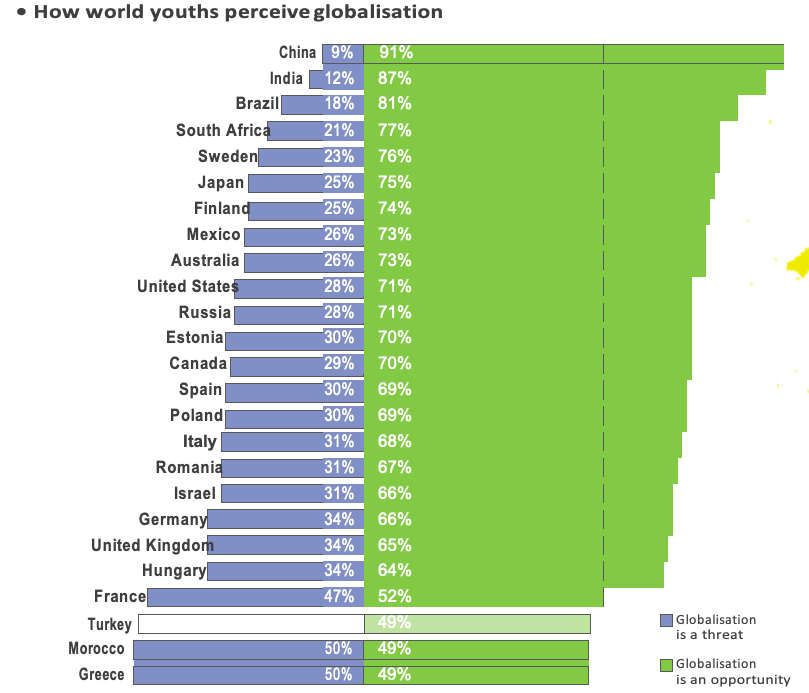
The world’s youth is promoting globalisation
The power of globalisation cannot be understood without taking into account how committed to it young people are. The scepticism it inspires in some countries, including France, so far represents the exception. From the centre of the Western world to the core of the European Union, our findings bring to light the possibility of a split opinion: on one side determined youths who have already adopted the world’s new pace, and on the other, reluctant and fearful youths whose reservations should not be encouraged.
Unfortunately, French young people are among those who have reservations. Yet that does not prevent them from liking the age in which they live, thereby manifesting an open-mindedness which should first be recorded and acknowledged and then be vigorously fostered. The reluctance of a few Westerners who have fully prospered may suggest the bitterness of losers rather than a force capable of acting as a counterbalance or to pro- mote their own conception of the world. Judging from this survey’s findings, it is evident that the only nations which will have a serious impact on globalisation will be those which actively parti- cipate in it, which means that we need to allow our youths to commit themselves to it and help them do so. The young people surveyed by TNS Opinion were born between 1981 and 1994. The oldest were not even 10 when the Berlin Wall fell; the youngest have never seen anything but pictures of it while it was still standing. All of them grew up and were educated in a world already globa- lised. They therefore comprise the first authentic globalisation generations. When they will have taken on family, professional and political res- ponsibilities, they will be the first not to have experienced a world still familiar to their parents. Since the new generations are acquiring a more indepth knowledge of the rules and principles of the new world, it is by encouraging them to take power, and by offering them prospects which they can find credible that European nations will be able to retain their role in the workings of the world. The European nations worthy of the intellectual heritage they claim to possess, and whose decline they deplore with growing frequency, are also those which hope to see their children occupy a position of leadership in the world and actively contribute to humanity’s progress. By means of this survey, we hope that the Fondation pour l’in- novation politique will be making a contribution to what has become a necessary effort to raise public awareness.
Methodology of the survey and this paper
The survey “2011: The World’s Youth” was developed by the Fondation pour l’innovation politique. The TNS Opinion group, entrusted with carrying it out, polled 32,714 people based upon national samplings consisting of 1,000 individuals aged 16 to 29, as well as an addi- tional per-country sampling of 300 individuals aged 30 to 50. The aim of the second sampling was to allow comparisons between young generations and the first of the older generations. The questionnaire was administered in 25 countries and in each of the corresponding languages: 20 languages in all. It consisted of 242 items. The data was collected over a five-week period in order to neutralise cyclical effects (between 16 June and 22 July 2010). The age, gender and domicile quota method was used to ensure adequately representative samplings.
However, since the survey was administered via an electronic questionnaire, the emerging countries’ samplings are more representative of the population’s wealthier categories. In these countries, the respondents therefore tend to belong more to the social categories most in contact with globalisation. The survey covers both opinion and behavioural issues. It is sup- plemented by socio-demographic data collected to facilitate the analysis of social characteristics
in addition to national characteristics. It should be pointed out that some questions dealing with religious affiliations, deemed sensitive could not be asked of Moroccans, not for any censorship reasons but because so many of them refused to respond that we decided to withdraw these questions from the Moroccan questionnaire. The question about how important the fact of being European is for one’s identity was only asked to nationals originating from European Union countries. Similarly, the one dealing with how well the recipient knows English was not asked in English-speaking countries. In most of the questions, respondents were asked to answer by choosing between four levels of intensity: “Totally (agree),” “Tend to (agree),” “Tend to (disagree)” and “Totally (disagree)” to qualify, for example, a particular satisfaction, trust or optimism level.
In this paper, we present the findings by aggre- gating, on one side, the “Totally (agree)” and “Tend to (agree)” answers and, on the other hand, the “Tend not to (agree)” and “Totally (disagree) answers. In some cases, the indivi- duals surveyed were asked to choose between two or three responses. For example, we asked them if they were using their mobile phone to surf the Internet and the response choices were Yes” or “No.” Similarly, they could answer the question concerning the future role of major powers, respondents could answer by choosing between “a far more important role,” “an iden- tical role,” or “a far less important role.” Lastly, in other questions, respondents were asked to select up to three choices from lists which included 9 to 15 possible answers. In such a case, our results will mention a percen- tage of the recipients who choose a particular option such as “earning a lot of money,” from among their three top priorities for the next 15 years. The graphics are based upon national differences, gender or age. The data they show represent an aggregate of somewhat similar res- ponses , for example: “Totally agree” or “Tend to agree.” Therefore, by way of example, when we include a graph illustrating how the item “I am satisfied with my work” was ranked, this graph shows the combined responses “I am ‘Totally satisfied’” and “I am ‘Fairly satisfied’ with my work.”
The European mean was devised to aggregate the data from the twelve EU member countries represented in the survey. It was weighted accor- ding to the respective national populations.
It is impossible to use the same procedure on a global scale within the framework of this survey because of the significant disparities in population size between the countries: the only way to determine the weight represented by the population of these 25 countries would be to eliminate all, or nearly all, of the countries by substituting the demographic weight of only two of them: China and India. In some cases, we used a simple arithmetic mean. Since this mean would have the effect of assigning the same weight to each of the national populations despite the significant differences between them, we kept to a strict minimum the extent to which we used it. Under such conditions, any reference to this mean retains an indicative value.
We focused our analysis on the responses of young people (16 to 29), by limiting the compa- rison with those of their elders (30 to 50 year- olds) in cases revealing striking differences, or which dealt with issues for which a cross-gene- rational comparison was called for, such as the one about pensions.
Lastly, expressions such as “Chinese youths” or “young French,” or “the Americans,” which were used without any mention of age, always refer to the respondents aged 16 to 29.


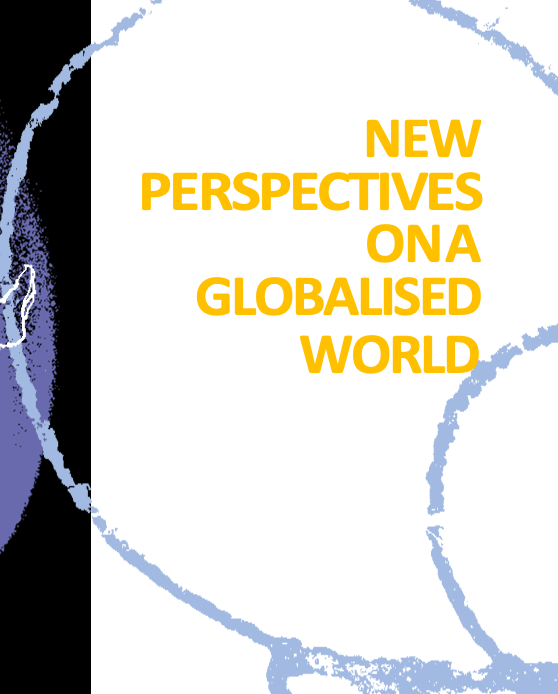

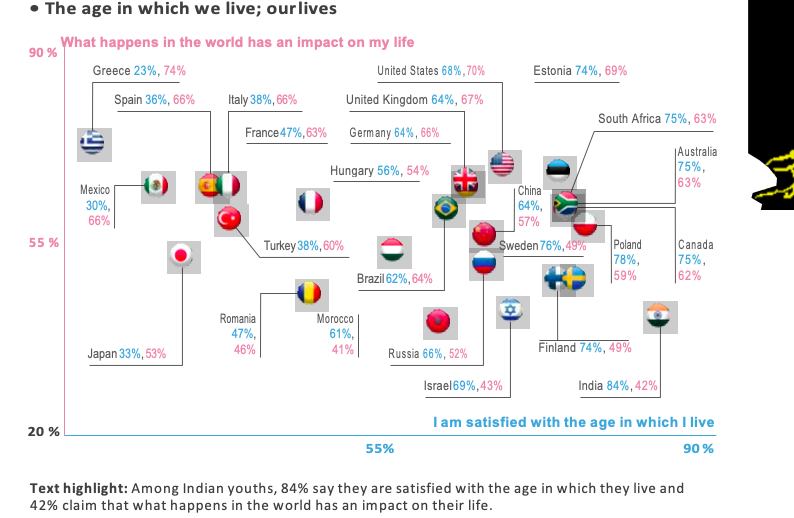

Emerging countries’ youths fully accept globalisation
Globalisation is considered to be an oppor- tunity by 91% of the Chinese, 87% of the Indian and 81% of the Brazilian respondents, while one out of two young Greeks see it as a threat, as do 47% of the French. Moroccan and Turkish youths are the only ones in developing countries who are split on the question (49% see it as an opportunity). Among rich countries, Scandinavian youths massively perceive globa- lisation as an opportunity (76% of the Swedes and 74% of the Finns).
Despite the national differences just highlighted, the results of our survey show that there is a virtually universal tendency among young people to accept globalisation. In Europe, the 30 to 50 age group seems to have the most reservations about globalisation, the generation gap being particularly wide in countries whose young populations are the most sceptical, such as France and Greece (+ 11 points), as well as Germany (+ 11) and Australia (+ 10).
Young people in emerging countries view globalisation’s symbols as favourable, as shown by the trust of the Chinese (62%) in the World Trade Organization (WTO) or that of the Indians (75%) in multinational companies. Such trust levels are not found in long-time developed countries: only 37% of the Americans and 40% of European youths expressed trust in the WTO.
Ever younger and more mobile
Twice as many European youths as others have been abroad during the last 12 months (49% as compared to 25%). The wish to live in ano- ther country is particularly widespread among Romanians (41%), Greeks (35%) and Estonians (31%). Overall, the 16 to 19 age group (27%) is more inclined to change countries than the 40 to 50 age group (17%). In non-English- speaking countries, the young people’s inclina- tion to travel is confirmed by their command of English: 62% of the 16 to 19 age group claim to be able to converse in this language, as com- pared to only 36% of the 40 to 50 year-olds.


Home sweet home, even in hard times: French youth
Home Sweet Home…
Eighty-three percent of French young people say that they are satisfied with their lives, which is higher than the European mean (78%). In Europe, only young Poles say that they are more satisfied (85%). Worldwide, only young Israelis (83%) match the French youths’ satisfaction level. Similarly, the French are overwhelmingly satisfied with their health (83%), leisure time (73%), friends (79%), and family (85%).
When French young people are asked which factors best correspond to their idea of a good life, their responses are not “earning a lot of money” (14%), nor “feeling free” (18%); the answer most often chosen is “starting a family” (47%), a percentage much higher than the European mean (39%) and only matched or exceeded worldwide by the Poles (48%), the Estonians and the Russians (47%) and the Moroccans (46%). Likewise, when asked what they hope to achieve during the next 15 years, the
French reply “owning a house or flat” in propor- tions (68%) which constitute the world record. The second most common reply is “having children” (58%), a percentage which positions French youths in second place behind the Russians.
French young people seem ill-at-ease in their time and in the world in which they will be living
Results change drastically when respondents are no longer asked to rate their own situation, but rather that of their country: only 25% of French youths are satisfied with the situation in their country, while 71% are not satisfied with it. True, this is scarcely more than the young Europeans’ mean score (69% are not satisfied with the general situation in their country).
The position of young French respondents is trou- bling if we consider that 55% of young Europeans claim to be satisfied with the age in which they live, as opposed to 47% of the French. In line with this gap between their concern for the collecti- vity and their happiness with their private lives, “family” comes before “nationality,” for when asked how important they feel various factors are for their identity, French youths choose “friends” first (89%), then “family” (88%), and only last of all, “nationality” (63%). It is noteworthy that, when asked about their identity, only 42% of the French young people choose as most important “the fact of being European,” as compared to a 48% ave- rage among other youths in the European Union. It should be mentioned that this split, which results from higher scores assigned to private mem- bership and affiliation categories, is shared by young people in other European countries. Only the young Swedes and Finns seem to enjoy both the private and collective aspects of happiness.
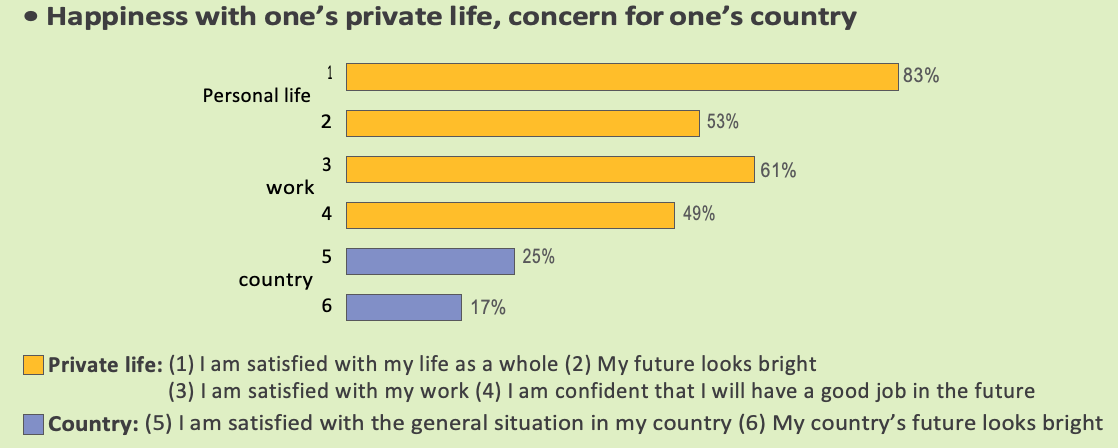
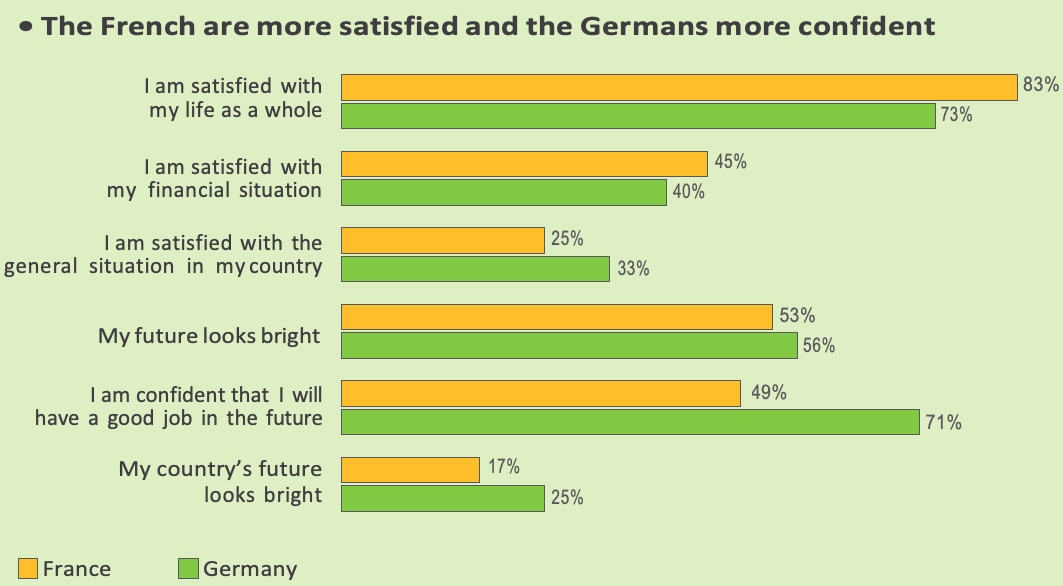
French youths are among the world’s most pessimistic
Scarcely one out of two young French youths (53%) believe that their personal future looks bright, as opposed to 61% of their European coun- terparts. Only young Greeks and Japanese (43%), Hungarians (49%), Italians and Spaniards (50%) are even less optimistic. Yet when French youths were asked whether they think their country’s future looks bright, 75% gave a negative response! It is telling to compare the 17% of French respondents who think their country’s future looks bright with the figure for the Chinese (82%) or Indians (83%). On a different note, but with somewhat similar results, 70% of young people surveyed worldwide agree that they are “confident that they will have a good job in the future,” while only 65% of respon- dents in Europe – and just 49% in France – agree. Among the twenty-five countries covered in our survey, only young Greeks had as pessimistic an outlook about their own country’s future. All other European youths, and even the young Japanese, are more optimistic. France therefore has one of the world’s most pessimistic youths.
One of the youths most fearful of globalisation
One distinctive trait of French youths is also their relative scepticism concerning globalisation: 52% of the French surveyed state that globalisa- tion is an opportunity, a figure much lower than the European mean (65%). In Europe, only young Greeks scored lower than that (49%). Outside of Europe, and on the same level as the Greeks, only the Turkish and Moroccan youths (49%) share this reluctance. Everywhere else in the world, young people overwhelmingly view globalisation as an opportunity, including Germany (66%), Italy (68%), Spain (69%), Sweden (76%), South Africa (77%), the United States (71%) and, as might be expected, Brazil (81%), India (87%) and China (91%).

Lack of confidence in Greece
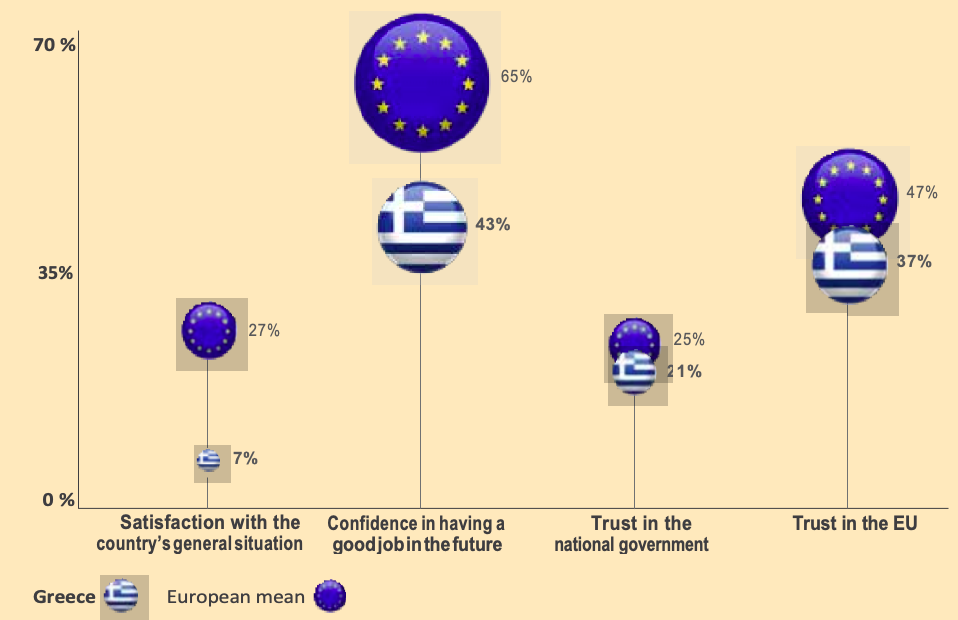
No country better exemplifies the effects of the economic climate on public opinion than Greece. Seventy-four percent of young Greeks admit that what happens in the world has a significant impact on their lives, as compared to the European mean of 63%. It is interesting to note to what extent the economic crisis made young Greeks pessimistic: only 42% of them say that they are satisfied with their work, 30% with their finances, 23% with the age in which they live and 7% with the general situation in their country. Forty-nine percent of them are pessimistic about their personal future and 80% about their country’s future. Moreover, only 43% of young Greek respondents are confident that they will have a good job in the future (as compared to 65% of the Europeans). More than one-third (35%) would like to live abroad.
Lastly, their level of trust in institutions is especially low, whether with regard to their government (21%), parliament (18%) or media (19%). The trust that they place in international bodies is scarcely any higher, whether concerning the European Union (37%), the United Nations (36%), the World Trade Organisation (28%), NGOs (29%) or multinational companies (22%). However, Greek youths still trust the United Nations (36%) much more than their elders do (23%).
In general, sharp differences can be seen between the 16 to 29 and 39 to 50 age groups: 20% of the 16 to 29 age group say that they are proud of the rich people in their country, as compared to 9% of the 30 to 50-year-olds. Twenty-three percent of the 16 to 29 age group prefer paying the least taxes possible in exchange for a weaker welfare system (as compared to 15% of the 30 to 50 year-olds). On the other hand, more young people (67%) than their elders (58%) feel that they should have the right to refuse a job which does not correspond to their qualifications without having to lose unem- ployment benefits.
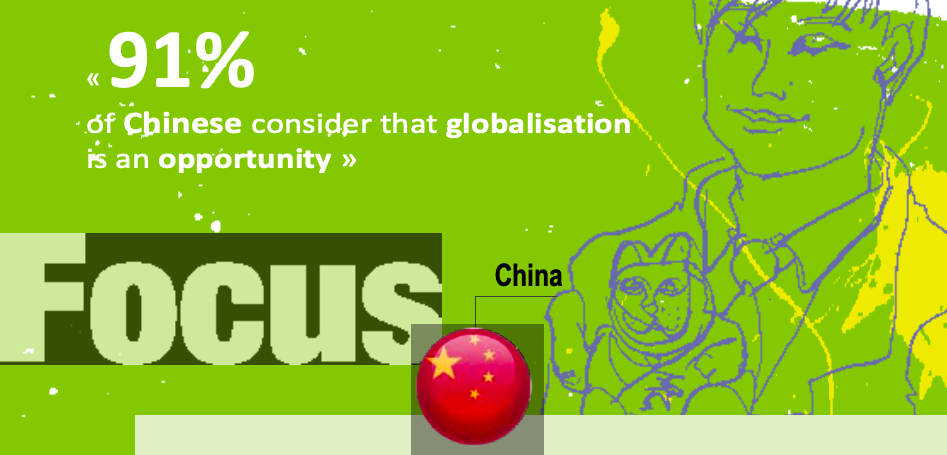
Fifty-eight percent of the young people surveyed worldwide predict that China will have a far more important role to play in the future, trailing far behind the European Union (36%), India (31%), the United States (29%), Russia (28%) and Brazil (20%). Young Chinese themselves are aware that the eyes of the world are riveted on their country: they unequivocally feel that globalisation is an opportunity (91%, which constitutes a record). Eighty-two percent of Chinese youths believe that their country’s future looks bright, while 61% say that they are satisfied with the general situation in their country.
Although they feel more optimistic about their personal future (73%) than that of their elders (51%), this score nonetheless remains lower than that recorded by young respondents of other emerging powers (90% for young Indians and 87% for Brazilians), and for Anglo-Saxon and Scandinavian post-industrial countries, such as the Canadians (79%) and the Swedes (75%). Similarly, the Chinese youths’ levels of satisfaction with their work (45%) and their finances (37%) are far lower than those of the Indians. The answers given by the young Chinese may be attributed in part to their cultural beliefs which prohibit them from showing any satisfaction with regard to their own condition, or to the potential effects of self-censorship concer- ning government-related questions. They may also reflect the idea that the benefits of globalisation are primarily felt at the macro-economic level.
China’s entry into globalisation may well lead to an upheaval with regard to its young people’s values and aspirations. Indeed, in this long-standing Communist society, it is surprising to see that 57% of these youths affirm that they are proud of the rich people in their country, and 34% think that earning a lot of money corresponds to their idea of a good life. Similarly, a particularly large number of this group (58%) choose Independence as one of the qualities which children should be the most encouraged to learn at home. Forty percent of them say that a good life is predicated upon feeling free, the highest figure among youths worldwide. There is no social fatalism among Chinese young people, whose members claim that they always do what they want (81%) and overwhelmingly believe that people can change society (84%) and that people have the opportunity to choose their own lives (83%). While, among Chinese youths, globalisation does not translate into the hyper-optimism which can be observed in their Indian counterparts, eco- nomic openness has obviously been accompanied by a profound transformation of their value system. Although such results are more representative of a wealthy fringe of Chinese society, they are still unexpected and merit a more in-depth study.
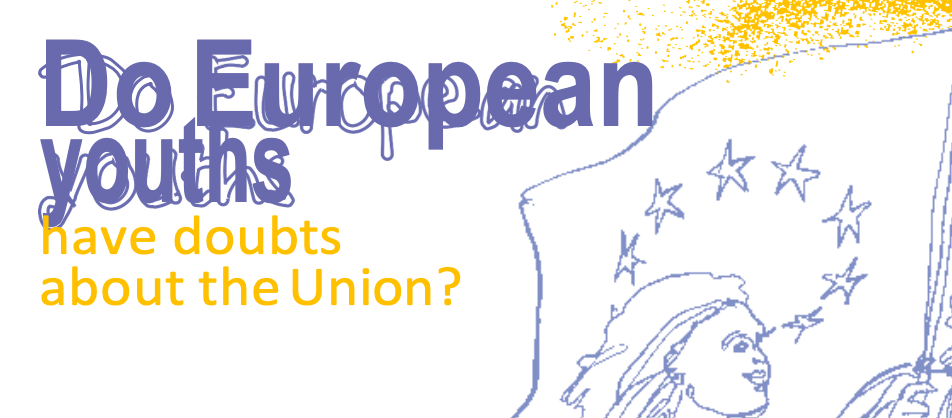
A sense of attachment to Europe is no substitute for national identity
At first glance, the survey results seem to indi- cate that the European Union has not comple- tely won over young Europeans. For example, 48% of them rate the fact of being European as one of the three least important identity factors, followed by their ethnic group (45%) and reli- gion (35%). Nationality is given a much higher rating (66%). The young Poles assign natio- nality the highest level of importance for their identity (77%), while the Germans consider it least important (56%).
Europe is not making much headway with the French: 54% of them consider the European aspect of their identity as not important. Eastern Europeans’ results are quite different. The fact of being European matters to the Romanians (61%), the Hungarians (56%) and the Poles (55%). Being European is no substitute for national identity, since nationality ranks high among the Poles (77%), the Romanians (69%) and the Hungarians (68%); i.e., the result is higher than the European mean (66%).
As might be expected, pro-European sentiment is particularly weak in the United Kingdom:

Our survey revealed a deep trust crisis among Turks with regard to the European Union: 62% of the 16 to 29 age group (and 64% of the 30 to 50 year-olds) do not trust the EU. In fact, young Turks are the most distrustful of European institutions, more so than the Greeks (60%). Even though Turkey is still a candidate for accession, its young people are the most inclined to believe that the EU will play a far less important role in the future: 30% of them share this negative opinion, a score far higher than that of the Americans (10%), the Chinese (8%), the Brazilians (9%) or the Moroccans (12%). It is true that, in Turkey, scepticism about the European Union’s future role is stronger among the 30 to 50 age group (43%).
Distrust of the EU is accompanied by a distrust of the United Nations, which is expressed by young respondents (55%) as well as by their elders (63%). The young Turks’ euroscepticism therefore reflects a global view of the world. For example, they have mixed opinions about globalisation: 49% of them think that globalisation is a threat, and 49% see it as an opportunity. Similarly, 27% of them foresee a decline in the future role of the United States their long-time privileged ally – a belief which only the Russians are more prone to share (34%). Everything seems to indicate that young Turks were turning their attention elsewhere: according to them, the two countries whose roles will be more important in the future than today are Russia (45%) and, to an even greater extent, China (62%).
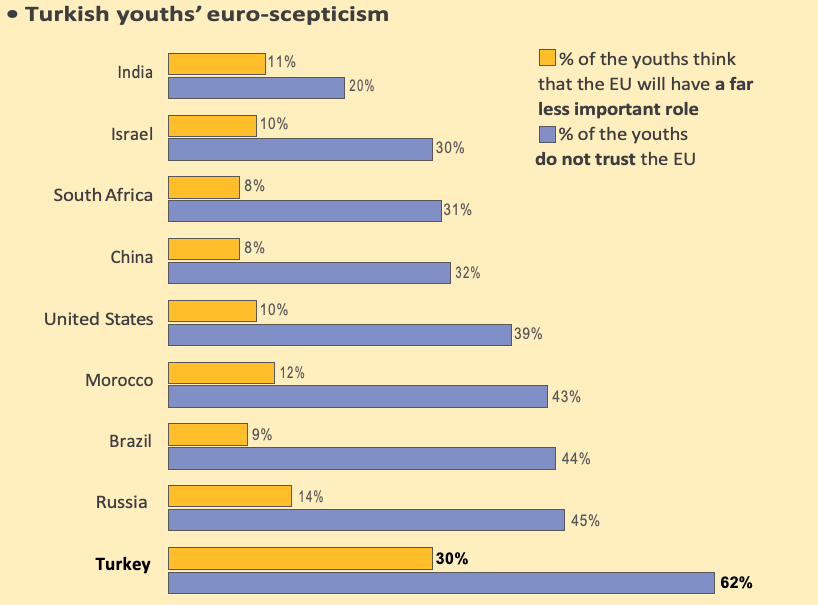
the fact of being European is favoured by only one-third of the young respondents, and by an even lesser number of their elders (29%), which may suggest that an increasing number of British youths believe that being European is important.
Fewer than one out of two young Europeans trust the European Union
Only 47% of young Europeans say that they trust the European Union, which attests to an indecisive adhesion by the Erasmus genera- tion. Trust is greater among the new member countries’ youths, whether Romanian (61%), Estonian (61%), Polish (60%) or Hungarian (55%). In contrast to the new EU citizens’ enthusiasm for European integration, Western Europe youths are proving to be sceptical, with only Italians indicating more trust in the EU (50%) than distrust (44%). However, young Europeans trust the EU more than their elders do by a seven-point mean gap, while each of these generations assign a certain importance, as far as their identity is concerned, to being European
Young Europeans nevertheless anticipate a more important role for the European Union
Only 12% of young Europeans believe that the European Union will play a less important role in the future, while 38% anticipate that it will play a comparable role to that which it plays today, and 39% that it will play a far more important role. These predictions place the Union imme- diately behind China, which 58% of the youths anticipate will play a more important role than it does today, followed by India (31%), the United States (29%), Russia (28%) and Brazil (20%). Young Eastern Europeans are particularly opti- mistic about the EU’s future role, which is antici- pated to be more important than today by 62% of the Romanians, 52% of the Poles and 42% of the Hungarians, while the French (29%) and the Greeks (32%) are clearly less enthusiastic. A relatively large number of Italians think that the Union’s role will decline (17% as opposed to the mean score of 12% among young Europeans); yet they stand out for having the highest extent of trust in the Union among young Western Europeans.
Such results challenge the contention that euros- cepticism prevails among the newest Member States’ youths. To the contrary, our survey shows that such sentiment persists among the youths of the countries which have been Union members the longest, such as France, the United Kingdom and Greece.
Emerging countries’ youths do not distrust the European Union
The European Union enjoys the support of a portion of the youths living outside of Europe. For example, the Mexicans (51%), the Israelis (45%), the Moroccans (44%) and the Chinese (40%) are more numerous than the Europeans themselves in envisaging a more important role for the EU in the future.
Similarly, 73% of the Indians trust the Union, followed by the Israelis (59%), the South Africans (57%) and the Chinese (54%). On the other hand, the Russians (42%) tend not to trust the Union and only 26% of them see it as playing a more important role than it does today. This distrust is shared by the Turks, who seem disillusioned in this regard. The European partners’ reversal about Turkey’s membership might account for this feeling.
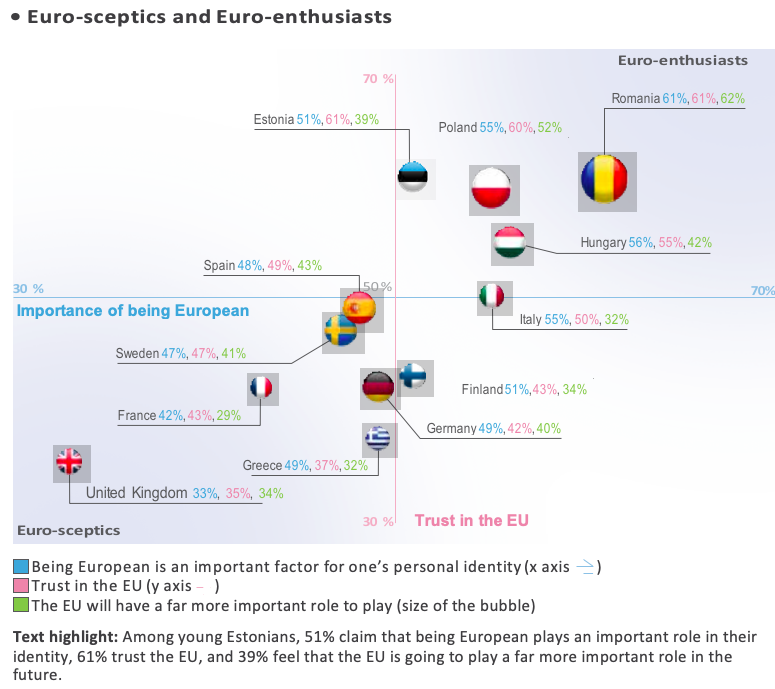
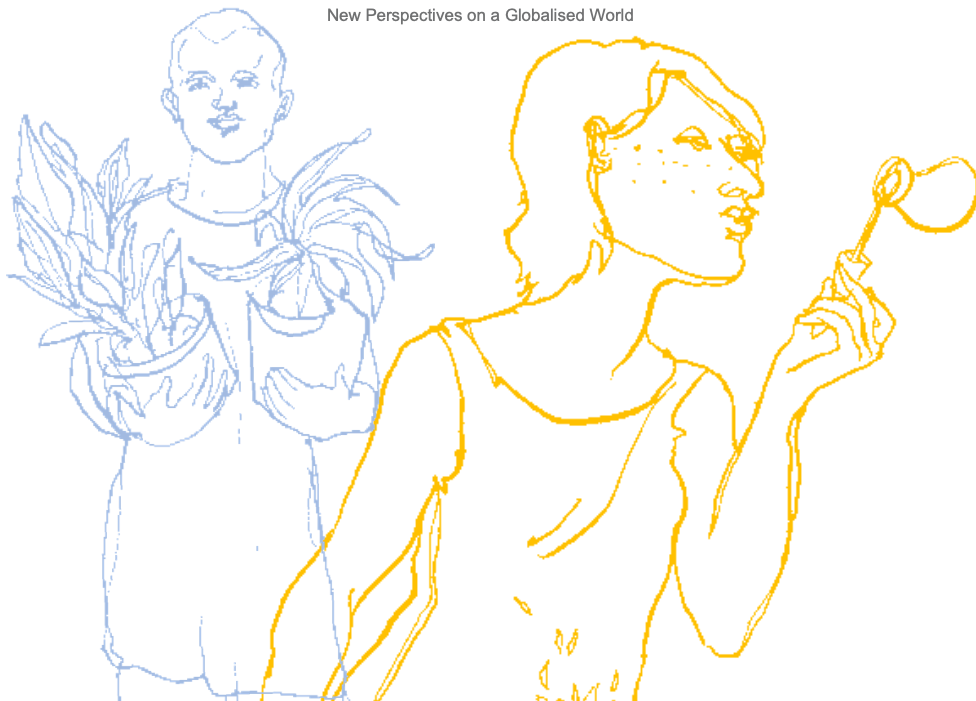
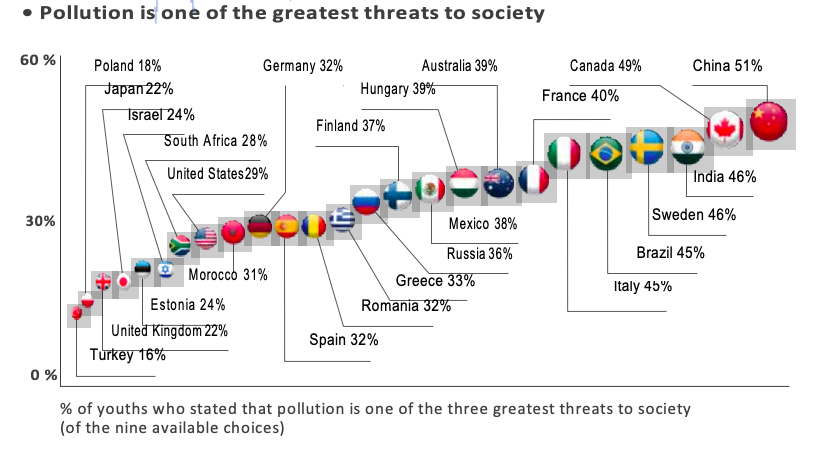

We decided to assess the extent of respondents’ concern about threats to the environment by asking them two different questions: the first offered half of the sampling the response “pollution” among a list of proposed choices; the second offered the other half of the sampling a list which included the response “climate ”.
Chinese youths are the most concerned about pollution
When asked what they consider “the grea- test threats to society,” our survey shows that “pollution” is cited by one-third of the Europeans (32%), but even more so by the Brazilians (45%), the Indians (46%) and the Chinese (51%). In China, young people are more concerned about pollution (51%) than “poverty and famine” (43%), as are Indian youths in similar proportions (46%, as opposed to 40%), while Brazilian youths are more concerned about poverty and famine (61%) than pollution (45%), like most of the world’s other youths.
Among European youths, it is the Swedes who are the most concerned about pollution
In Europe, the young people most concerned about pollution are the Swedes (46%), the Italians (45%), the French (40%) and the Hungarians (39%). The least concerned are the British (22%) and the Poles (18%).
In the world beyond the countries mentioned, it is the Canadians (49%) and the Australians (39%) who indicate the greatest concern for the environment with, on the opposite side, the Israelis (24%), the Japanese (22%) and the Turks (16%).
Climate change is of lesser concern than unemployment
When presenting a second list of the greatest threats which includes the response “climate change,”1 the same distribution of apprehen- sions can be seen among the world’s youths: the Europeans’ concern level (23%) is much lower than that of the Chinese (35%), who are surpassed in terms of their fear only by the Canadians (36%). Within all groups, the greatest concerns are war, unemployment, ter- rorism, famine, and the collapse of the inter- national financial system.
The concern expressed by emerging countries’ youths constitutes one aspect of globalisation which had not been anticipated by proponents of the extreme climate change scenario.


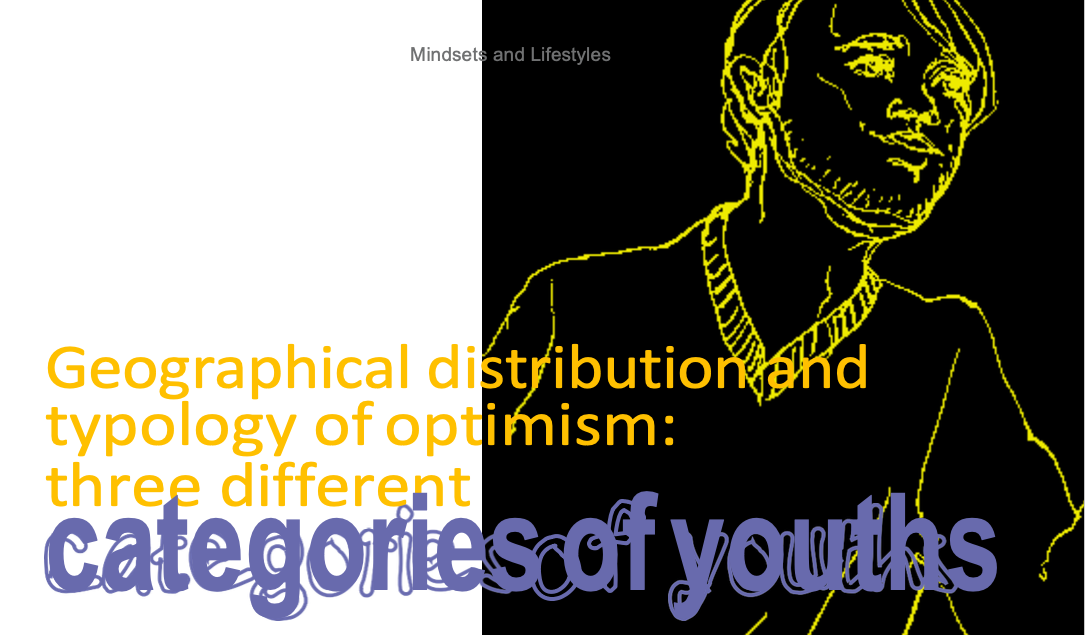
Geographical scope of the crisis
The young people’s responses to the questions concerning the future are obviously affected by each country’s economic situation. Thus, traces of the financial crisis can be found in the fact that, on average, far fewer young Greeks (43%) than Europeans agree that their personal future looks bright. There are also, on average, fewer Greeks (17%) than Europeans (27%) who think their country’s future looks bright. This pessimism is shared by young French (17%), Spaniards (20%), Italians (22%), Germans and Hungarians (25%), not to men- tion the Japanese (24%). It is in stark contrast to the Scandinavians’ optimism (Finns, 61%; Swedes, 63%), Canadians (65%), Australians (63%) and, to an even greater extent, that of the Indians (83%), the Chinese (82%) and the Brazilians (72%). It is therefore the youths of major emerging powers, as well as of the countries in the forefront of new technologies who view the future with confidence. On the other hand, it is evident that the relative opti- mism of the young Scandinavians and Anglo- Saxons is tempered by a particularly high level of “Do not know” answers concerning the future role of major powers. Moreover, they are less likely to be keeping up with the news via the Internet: 26% of the Canadians and Swedes and 36% of the Finns, as opposed to 50% of the Greeks, 52% of the Spaniards, and 58% of the Italians. Similarly, only 49% of the Scandinavians believe that what happens in the world has much impact on their lives, as opposed to 74% of the Greeks and 66% of the Spaniards and the Italians. One might therefore wonder whether the Scandinavians’ and Anglo- Saxons’ relative optimism might be imputable to their lesser interest in public affairs.
Enthusiastic young people
Several of the questions asked may be used to assess the extent to which the world’s youths are optimistic. The first deals with the prospects of having a good job in the future; the second concerns their country’s future and whether or not it looks bright; and lastly, the third question asks whether or not they agree that their future looks bright.
The results reveal an initial geographical and human set of data characterised by a high degree of optimism as recorded in the res- ponses to the three questions. These are the enthusiastic youths. They include two sub-sets: the first corresponds to the youths of the key emerging powers Brazil, India, China, Russia and Morocco; the second consists of the youths of nations which have already attained a high level of wealth; i.e., Canada, Australia, Israel, Finland and Sweden.
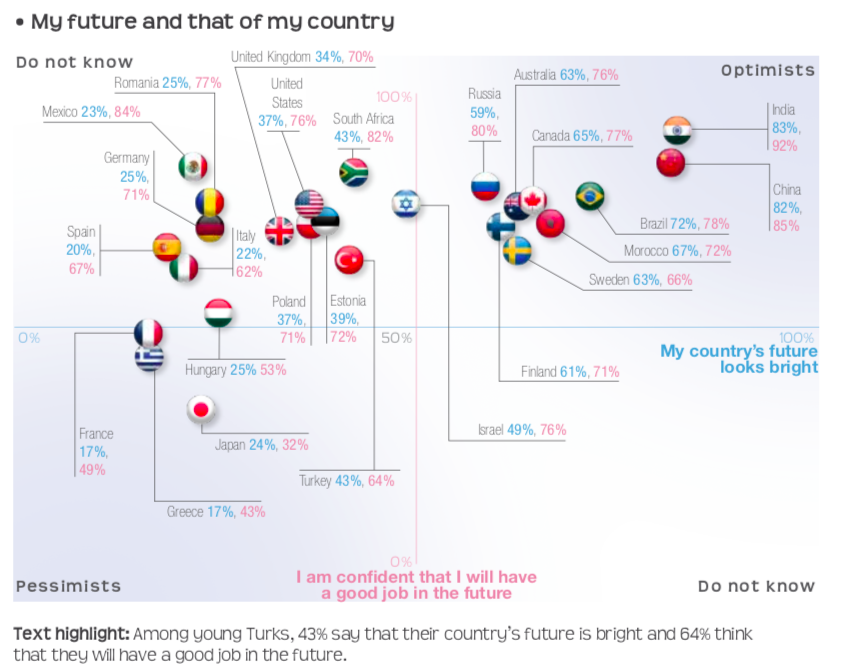
Youths more certain of themselves than of their homelands
The second set encompasses youths who are just as convinced that their future looks bright as they are that they will have a good job in the future; however, they do not believe that their country’s future looks bright. This category of youths are from the United States, Mexico, the European Union (excluding the Greeks, the Finns and the Swedes), South Africa and Turkey.
Worried youths
Lastly, two countries (Japan and Greece) are dealing with a serious youth-related issue. neither Greek nor Japanese young people are optimistic about their professional future, their personal future, or the future of their country.
Everywhere, self-confidence is greater than trust in government
It is striking to observe that everywhere – in each of the 25 countries surveyed – the trust which these youths express in their own future and in their own professional future is greater than their trust in the future of their own country.

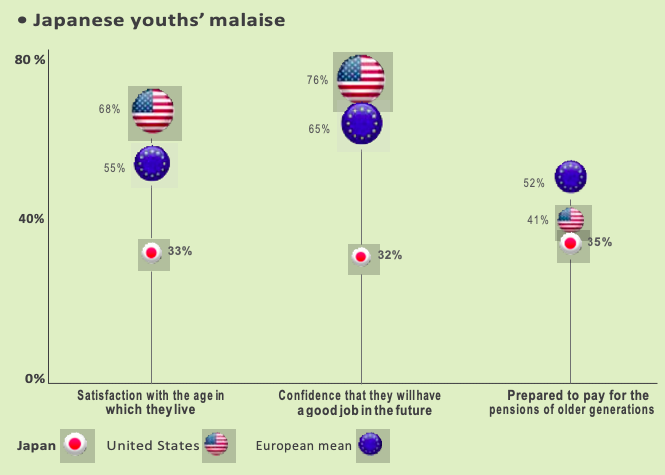

Eighty-three percent of young Israelis say that they are satisfied with their life as a whole, which is the second highest percentage among the youth groups surveyed, after the Poles (85%). This country’s young people also express the highest level of satisfaction with their finances (61%). In general, they give highly positive responses to all satisfaction-related questions. However, when invited to rate the “general situation in your country,” they express more dissatisfaction (49%) than satisfaction (46%). It should be noted that the level of discontentment concerning the general situation in their own country is much higher among Western youths, since it reaches 69% among Europeans and 62% among Americans. Scandinavians, Canadians and Australians, however, are more confident about the future of their country than the Israelis.
Similarly, 81% of the Israelis feel that their future looks “bright” and are convinced that they will have “a good job in the future” (76%). This optimism is surpassed only by that of the Brazilian (87%) and Indian (90%) youths.
This mindset may be attri- buted to the fact that nearly all of them (85%) feel that their nationality is an important factor in sha- ping their identity, which results in their ranking nationality ahead of religion (63%).
Lastly, Israeli young people stand out because of the trust they have in their country’s government, parliament, army, police force, justice system, religious institutions, and media. This is a unique case among Western youths and, worldwide, only the Chinese, Indian and Moroccan youths express equal trust in their national institutions. Whether it is the cause or consequence of this nearly gene- ralised trust, young Israelis like the era and the world in which they live. A clear majority of them consider globalisation more as an opportunity (66%) than a threat (31%), making them one of the youth categories most comfortable with the new world and happiest to be a part of it.
The “Optimism Index” is a mean of positive responses to the following questions: Does your future look bright? Does your country’s future look bright ? and How certain are you that you will have a good job in the future?
The “Satisfaction Index” is a mean of positive responses to questions concerning satisfaction (live as a whole, finances, health, work, leisure time, friends, family, general situation of the country, the age in which the respondent lives).
The “Trust Index” is a mean of positive responses to questions concerning trust in institutions (national government, parliament, media, justice system, army, and police force).

My family, my identity
In every country surveyed, family relations are considered invaluable. Rating it highest, at 98%, are the Indians, who feel that spending time with their family is important, as opposed to 79% of the Japanese, who rate this lowest. The importance of family ties can be seen in the extent to which young people ranked their family among the factors contributing to their personal identity: 95% of the Indians, as opposed to 73% of the Japanese, acknowledge it as playing an important role.
Not only do young people assign considerable importance to family in general, but they are also satisfied with their own families: 85% of Europeans, 87% of Americans and 90% of Indians surveyed say so. Once again, Japanese youths stand out by their lower satisfaction level (69%). All the youths say that the family is the foundation of society: 94% of the Chinese, 89% of the Estonians, 70% of the French and 65% of the Swedes. These variations obviously do not challenge the core role of the family for the world’s youths.
Starting a family
Among the various aspects of life, that of star- ting a family is the one which most closely corresponds to young people’s idea of a good life, which came in second place after being healthy. Starting a family is a plan particularly adhered to by the Polish (48%), French and Russian (47%) youths, but not by Indian youths >>>
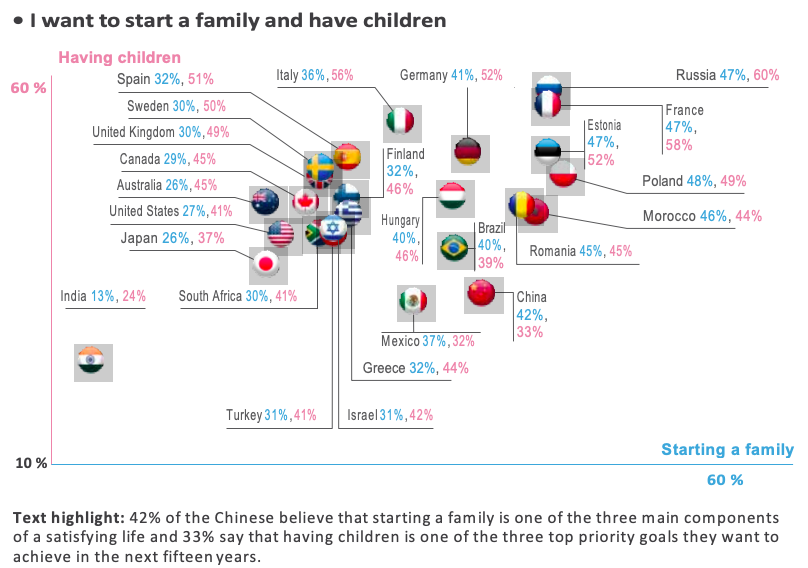
>>>(13%). Having children is also a priority for the world’s youths. Those who value this idea the most are the French (58%) and Russians (60%); it appears less important to the Chinese (33%), Mexicans (32%) and Indians (24%) than to the Germans (52%), Spaniards (51%), Italians (56%), British (49%), Poles (48%) and Romanians (45%).
Becoming a property owner
Among the goals which youths hope to achieve within the next fifteen years, owning a house or flat ranks highest. Young people’s hopes revolve around having a home. This aspiration is the number one choice among the French, who are most numerous to seek this goal (68%), slightly ahead of the Poles (65%) and the Chinese (63%).
Cultivating friendships
For most young people, spending time with their friends is important: it is rated the highest in China (96%), Russia (91%) and even Japan (81%). Nonetheless, time spent with friends does not constitute a criterion for a good life. It is the Australians (29%) and British (26%) who mention it the most, without rating it very highly, and the Russians (8%) and Japanese (6%) who mention it the least. Furthermore, young people are less satisfied with their friends than they are with their family: 84% of the Russians are satis- fied with their family and only 78% with their friends, while 69% of the Japanese are satisfied with their family and 62% with their friends.
Being in love
Being in love is one of the criteria most often mentioned by youths in defining a good life. It is British youths who assign the greatest impor- tance to being in love (55%), far ahead of the French (35%), Italians (32%) and Spaniards (29%). Among the world’s youths, the Russians (11%) and Mexicans (12%) consider it least important, as opposed to the Americans (46%), South Africans (38%), Australians (43%), Indians (36%) and Israelis (30%).
Most closely associate identity with belonging to a group
Half of the young Moroccans believe that society is intolerant towards people like them Young Moroccans feel very strongly that they belong to the society in which they live (83%). Only the Indians (89%), Israelis (84%), Brazilians (80%), Chinese (79%) and Mexicans (78%) are equally convinced. By comparison, only 56% of the French and 65% of the Spaniards shared this feeling.
Expressing a strong sense of belonging to a society does not imply that they are at ease with it.
Nearly one out of two Moroccans (48%) indicate their impression that society is intolerant towards people like them, a level identical with that of Japanese youths (48%) but far higher than that of American (34%) and European (29%) youths – notably the French (28%) and Spanish (27%). Only Turkish youths express stronger feelings on this issue (53%).

Unemployment is still a concern…
The young Westerners we surveyed have yet to experience full employment: 45% of young Europeans rank unemployment as one of the greatest threats to society, more so than terro- rism or climate change, and rank it a far higher concern than do their elders, with a 10-point gap bet@ween their scores (in Sweden, the United Kingdom, Poland and Hungary).
Only one out of two young people feel satisfied with his or her work (49%). The ratio is higher among most of the emerging countries’ youths (64% in India, 58% in South Africa and 57% in Morocco), but slightly lower in China (45%). The French belie their reputation by obtaining the Western countries’ top score, with 61% of its young people claiming to be satisfied with their work. The opposite is seen in the extre- mely low satisfaction level of Japanese youths (30%).

Trust in their professional future
Far from being depressed by the threat of unemployment, the vast majority of young people (70%) claim to be confident that they will have a good job in the future, more so than their elders (62%). With the notable exception of Japan (32%), non-European Western youths prove to be nearly as optimistic as those of the leading emerging countries. Young Europeans are less confident, particularly the Greeks and the French, of whom less than half (43% and 49%, respectively) think they will be able to find a good job.
Above all, a good job must pay well
Earning a good salary is the criterion most often chosen by the youths in nearly all of the countries. Moroccan, Scandinavian, Chinese and Japanese young people are exceptions because they do not rank the financial consideration in first position. However, salary level is crucial for the Russians (71%) and Poles (69%). A good working atmosphere and friendly colleagues appears to be the second most important factor for a successful career. Young Europeans (51%) and Chinese (55%) value this aspect more than the others, while the Moroccans (33%) and Israelis (36%) seem less concerned about it.
The interesting nature of one’s professional acti- vity comes in third, but this is not a question with significantly different ratings among the countries: although Russian and French youths assign much importance to having an interesting job, a good salary remains their primary concern – unlike the Scandinavians, who place the grea- test emphasis on an interesting job. In contrast, having an exciting job is not essential to young Turks and Moroccans (13%), and also mat- ters little to young people from such emerging countries as China, India, Brazil and Mexico.
In answer to the question “Which of the fol- lowing factors best correspond to your idea of a good life?” having an exciting job seems to be a secondary life goal. A good life means, first and foremost, being healthy, starting a family, and being in love. But being excited about one’s work is often deemed just as important as ear- ning a lot of money or even spending time with friends: 33% of young Mexicans rank having an exciting job as one of the three prerequisites for a satisfying life, as do 28% of young Indians, Poles and Italians.
Interestingly, worldwide, youths feel that their education and profession are more important factors in constituting their identity than their religion, ethnic group, or even nationality. In fact, 83% of them feel that education is an important factor in their identity. This belief is asserted even more strongly among youths in such emerging countries as China (89%), Brazil (90%), Mexico (95%) and India (97%). Similarly, in these nations, one’s profession is presented as an important factor in constituting one’s identity: India (93%), Brazil (81%) and China (78%). Conversely, profession plays a less critical role in constituting the identity of rich countries’ youths (48% of Japanese, 66% of Americans and 70% of Europeans).
Social usefulness matters, but it is not a priority
Although young people are primarily interested in a job that pays well, performing a job that contributes positively to society matters more than prestige or vacation time. There is a major >>>
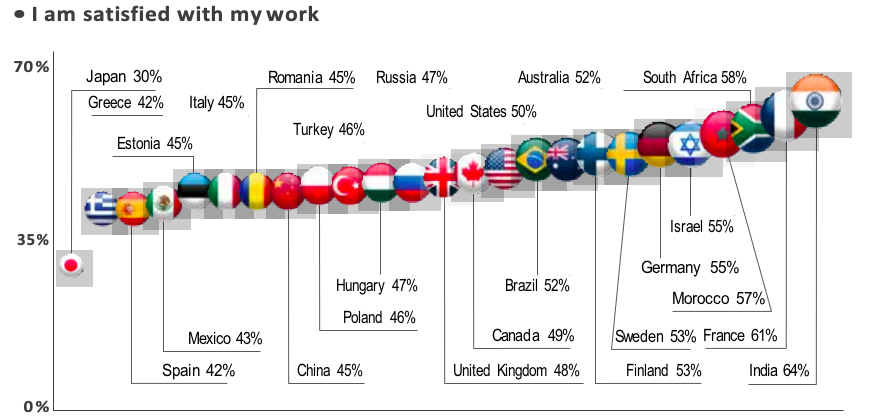
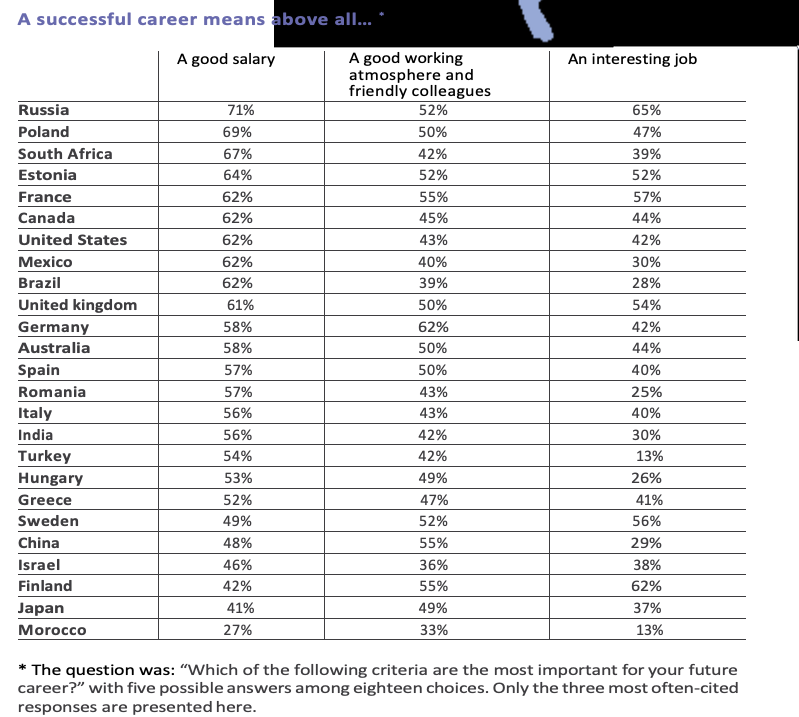
>>> distinction between European youths and those of other countries: 23% of young Europeans attach importance to the social usefulness of their professional activity, as opposed to 49% of Mexicans, 38% of Moroccans, 33% of Brazilians, 31% of Indians and Turks and 29% of Chinese. Anglo-Saxons (29% of Americans, 26% of Canadians and 25% of Australians) also value their job’s social impact more than young Europeans.
Fame? No thanks!
Among the suggested criteria of a good job, a prestigious status is particularly valued by the young Turks (24%), Indians (20%), Moroccans (19%) and Brazilians (17%), while it is virtually ignored by the French (4%), Australians and Americans (5%). Having a job with a lot of res- ponsibility is somewhat important to the Indians (18%), as well as to the Finns and Israelis (16%). Good career opportunities produced substan- tial gaps between rankings: among European youths, the most attached to this criterion are the Estonians (36%), the British and the Poles (35%), far ahead of the French (22%), Germans (21%) and Spaniards (17%). Outside of Europe, it is the Indians (44%), Russians (40%), Mexicans and Brazilians (39%) who place the most value on career opportunities, while the Japanese (10%) and Moroccans (16%) seem to overlook this aspect.
Although young people firmly believe that a suc- cessful professional life is important, they are vir- tually indifferent to becoming famous, which has no part in their future plans except for the young Israelis (14%) and Indians (27%), compared to a mean of 6% among young people worldwide.
In which sector do youths want to work? Services lead the way, with education ranked highest
Although the primary and secondary sectors account for more than half of all jobs worldwide, only 6% of the youths are interested in agricul- ture as a career, including in those countries whose growth heavily depends upon this sector (Mexico, Brazil and India). Similarly, the manu- facturing (9%), craft (9%) and construction (8%) industries aroused little interest.
On the other hand, over 70% of the young people want to pursue a job in the services sector. The response distribution among the sectors is somewhat homogeneous, with edu- cation being the top choice (22%), followed by research (20%). Despite the financial crisis and the public questioning of this sector’s prac- tices, banking and finance are more attractive to youths than to their elders (19% of youths on average, which is 5 points higher than for the 30 to 50 age group). Interestingly, it is mainly the Chinese (41%), Indians (32%) and Russians (25%) who would like to pursue a career in this sector. However, banking and finance are only favoured by 11% of the Japanese and 16% of the Europeans. A much more intense interest is shown by Eastern European youths in Estonia (29%), Poland (26%) and Romania (24%). The core component of globalisation – retail – only appeals to 10% of the young people as a career choice, and is scarcely any more popular in China (9%) or in Germany (10%), the world’s two leading export countries.
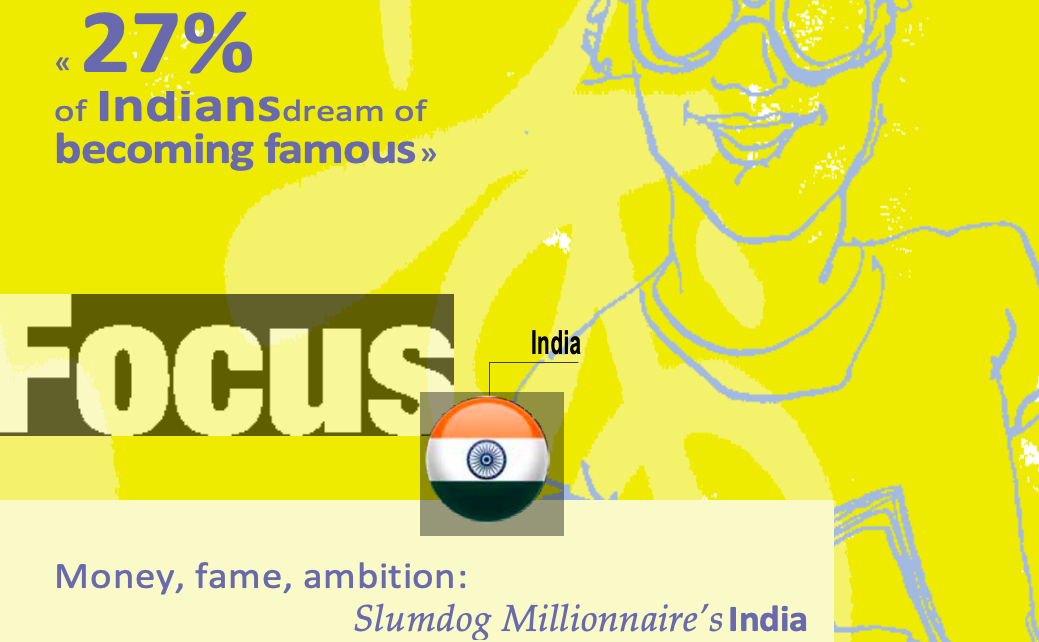
To the question ”What do you hope to achieve during the next 15 years?” the answer “earning a lot of money” is chosen by 60% of the young Indians, as opposed to 47% of the Europeans. Financial success is thus a priority for Indians, while the plan of owning a house or flat comes first for the quasi-totality of the rest of the youths worldwide. Confirming this first result are the criteria chosen for the factors corresponding to one’s idea of a good life: 41% of the Indians again answered “earning a lot of money,” as compared to 34% of the Chinese and 17% of Europeans. Most youths rank starting a family higher than earning a lot of money, with the notable exception of the Indian youths.
The Indians’ dream does not stop at wealth: 13% of them consider becoming famous one of the com- ponents of a good life, while other youths aspire to that only marginally (3%). In the same way, 27% of Indians say that they hope to become famous in the next fifteen years, as compared to 6% among young people worldwide. In fact, becoming famous is even more important to the Indians than obtaining a university degree (16%) or having children (24%).
Yet this desire does not necessarily corres- pond to a Bollywood dream: being recognised as an artist (musician, film-maker, actor, etc.) is one of the three top goals for only 9% of the Indians, which is in line with other youths’ rankings.
Ambition is what characterises Indian youths: among the criteria for a satisfying job, good career opportunities comes in second place (44%) after a good salary, as opposed to 26% for Europeans and 27% for the Chinese. A prestigious status is cited by 20% of the Indians, 8% of the Europeans and 12% of the Chinese. A job with a lot of res- ponsibility matters to 18% of the Indians, 7% of the Europeans and 9% of the Chinese. Lastly, beco- ming a manager or leader the preference of 27% of the Indians, 14% of the Europeans and 18% of the Chinese. To round out this portrait of young people entering a globalised world, it should be pointed out that 64% of the Indians are proud of the rich people in their country, as opposed to 57% of the Chinese and 22% of the Europeans.

The question about religious orientation offered respondents the following options: “A seeker,” “Agnostic,” “Atheist,” “Buddhist,” “Christian,” “Hindu,” “Jew,” “Muslim,” “Shinto,” “Sikh,” “Other religion,” “Religious person, without denomination,” “Not religious,” and “Do not know” in order to obtain the most refined analysis In this report, the term “Not religious” includes people who affirm that they are “Atheist” or “Not religious.
Religion: A mixed profile
Among European youths, combining the per- centages of those who choose agnosticism and non-belief,2 we obtain a total of 38%, a considerably lower ratio than the affirmation of being Christian (46%). French youths stand out by their even less pronounced interest in Christianity (28%).
Nearly one out of two young French respondents identifies himself or herself as agnostic or not religious (49%). Lack of religion has become a dominant trend among the new French generation. Affirming that they are Christian is of greater importance to Spaniards (43%), and even more so to Italians (60%). It is the overwhelming choice of Poles >>>
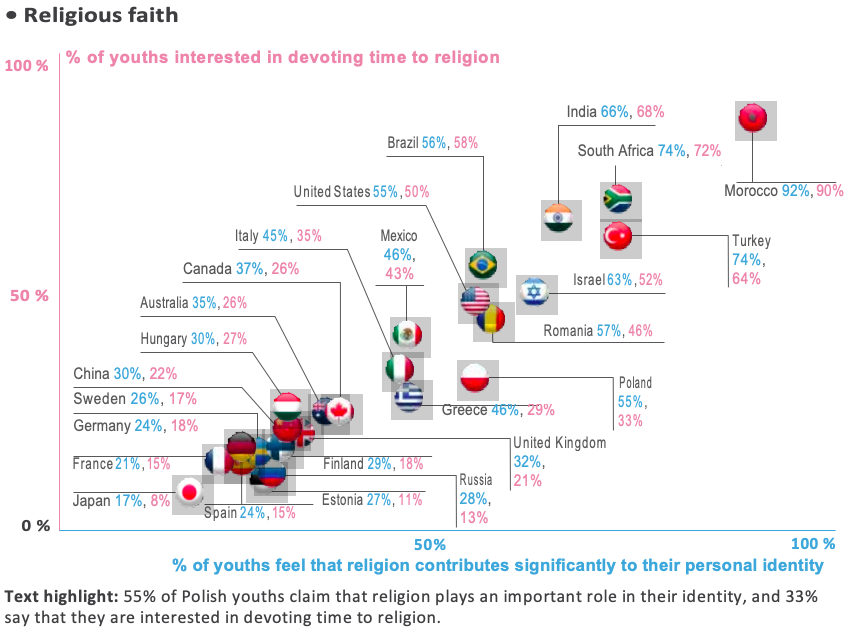
>>> (70%) and Romanians (76%), just as Islam is the top choice among Turkish youths (86%).
Although even more Polish youths affirm that they are Christian, a majority (61%) say that they are not interested, or only somewhat inte- rested, in the idea of devoting time to religion, with this proportion reaching 77% among the Germans and 80% among the French.
In emerging countries, to the contrary, many more youths claim to be interested in the idea of devoting time to religion, whether in Brazil (58%), Turkey (64%), India (68%), South Africa (72%) or Morocco (90%). Among rich countries, the American (50%) and Israeli youths (52%) have closer scores, on this point, to young people in emerging countries than to European youths (24%), a result comparable to young Canadians (26%) and Australians (26%). For obviously distinctly different reasons, the young people of two formerly major Communist powers are the least interested in the idea of devoting time to religion (22% in China and 13% in Russia).
Religion as an identity factor
The youths of all 25 countries surveyed syste- matically consider religion to be a more important identity factor than their willingness to devote time to religion, as if the connection with religion had more to do with membership than with commitment.
Trust in religious institutions seems to be linked to the desire to devote time to religion
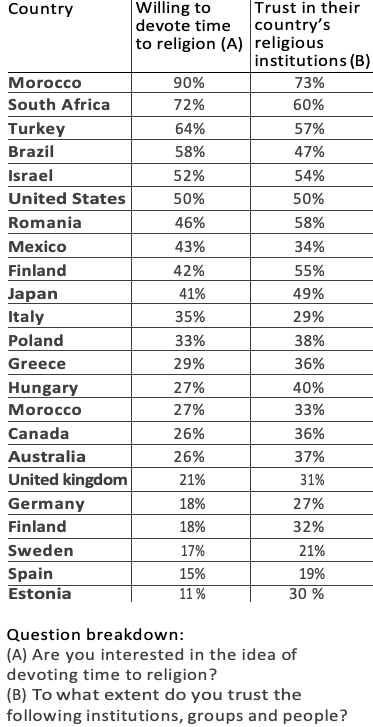
Religious faith is not one of the qualities that young people think are most important to pass on to their children
This is notably true of young French (4%), Estonians (3%) and Europeans in general (7%), but there is a slightly more pronounced interest in doing this among the Romanians (20%). The desire to pass on religious faith to children at home is more common among Americans and Brazilians (21%), Turks (29%), South Africans (36%) and Moroccans (56%).

When asked to indicate their religious orien- tation, 69% of young South Africans claim to be Christians, the second highest level after that of the Romanians (76%) and Poles (70%). Similarly, South Africans (72%) are the second most numerous youths after Moroccans (90%) to indicate that they want to devote some time to religion.
Among Christians, it is the South Africans who most often believe that religion constitutes an important identity factor (74%). Only the Turks (74%) and Moroccans (92%) associate so closely religion and identity. This singularity of South African youths also emerges when they are asked to name the qualities which children should be the most encouraged to develop at home: 36% of them feel that religious faith should be taught which constitutes a much higher ratio than that of the European (7%), Russian (12%), Mexican (13%), American and Brazilian youths (21%). Once again, only young people from Muslim countries assign a comparable or greater importance to it than the South Africans, as evi- denced by responses from the Turks (29%) and Moroccans (56%).
These similar views between South African youths and those of Muslim countries concerning religion is evident, lastly, in their answers to the question about whether spiritual values should be given greater importance in society. The South Africans overwhelmingly feel that it should be the case (80%), as do Moroccans (84%) and Turks (81%), far ahead of the Europeans (44%) and Americans (56%). It should be pointed out, however, that youths from several Christian countries also believe that spiri- tual values should be given greater importance in society: namely the Greeks (80%), Russians (88%), Estonians (78%) and Romanians (76%).
South African youths are interested in devoting time to religion
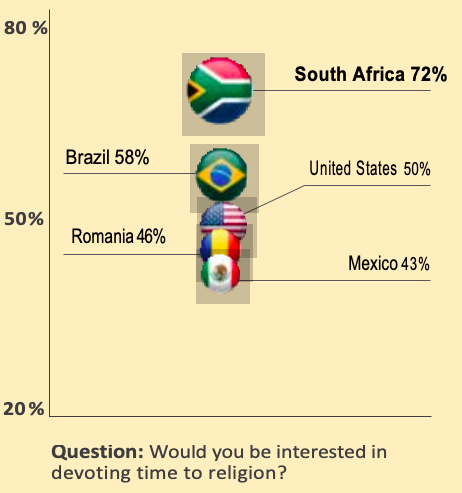
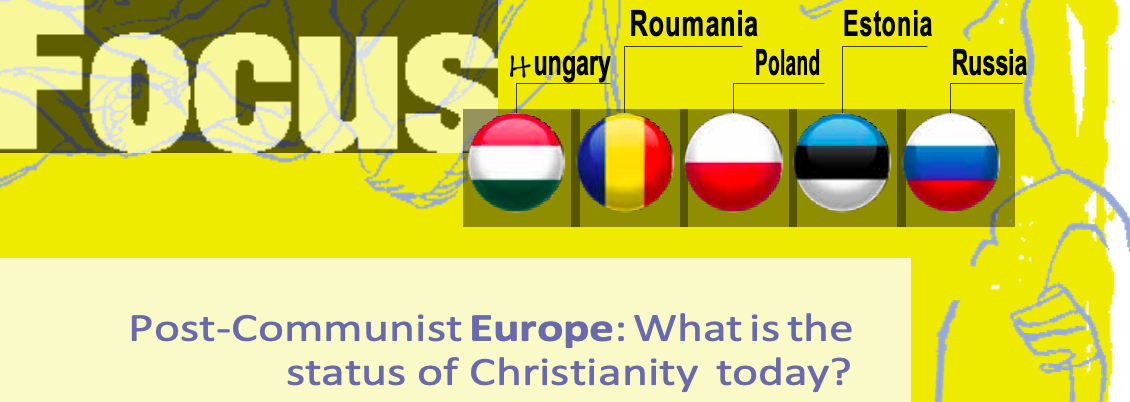
Young people born after 1980 were not directly affected by the Communist era. The collapse of Communism could have caused a religious revival through a transfer of belief. No such thing occurred among Eastern European youths. Few Hungarians (30%), Russians (28%) and Estonians (27%) believe that religion plays a decisive role in shaping their identity. However, youths of the former USSR agree that spiritual values should play a more important role in society. Russian youths (88%) attach more importance to this than the Estonians (78%). This opinion is shared only by 43% of Hungarians. A marginal percentage of Russian youths claim to be non-religious (13%), while the ratio is higher among Hungarians (34%) and Estonians (41%). Moreover, only 13% of Russians and 11% of Estonians claim to be interested in devoting more time to religion, as compared to 27% of Hungarians.
Conversely, the Poles and Romanians display a greater attachment to religion: 55% of the former and 57% of the latter find that it plays an impor- tant role in their personal identity. Only 13% of the Poles and 9% of the Romanians say that they are not religious. On the other hand, although 76% of Romanians feel that spiritual values should be given greater importance in society, only 46% of Poles agree. Moreover, 46% of young Romanians say that they are interested in devoting time to reli- gion, as compared to 33% of the Poles.
Lastly, few of the five post-Communist European countries’ youths choose religious faith as a qua- lity that children should be encouraged to learn at home: 3% of Estonians, 6% of Hungarians, 11% of Poles and 12% of the Russians. Considerably more Romanians (20%), however, do mention it.

European youths are less attracted to spiritual values than the rest of the world is
We chose to distinguish between “religion” and “spirituality” in our survey so as to allow young respondents to more specifically express their views on this aspect of their lives. Forty- four percent of Europeans believe that spiritual values should be given greater importance in society. Conversely, 89% of young Chinese share this opinion, as do 88% of Russians, 84% of Moroccans, 81% of Turks, 80% of South Africans, 75% of Indians, 72% of Mexicans, 71% of Brazilians and 56% of the Americans. There are wide variances among European youths. Those least interested in giving greater weight to spiritual values are the French and Germans (31%). On the other hand, the Romanians (76%) and Estonians (78%) are, in Europe, those who most overwhelmingly want to give these values more importance. This worldwide demand for spirituality is shared less >>>
>>> by the 16 to 29 than by the 30 to 50 age groups, except for Sweden (32% of the youths and 27% of their elders) and the United Kingdom (36% among the young people and 33% among their elders).
Family remains the foundation of society
Young people’s attachment to family is very strong everywhere: 77% of Europeans consider it to be the foundation of society. The youths of emerging countries value it even more highly, notably the Brazilians (87%), Moroccans (88%), Turks (89%), Indians (92%), Chinese and Mexicans (94%).
Sexuality:
A conditional freedom
For a considerable portion of young people, non-marital sexual relations are not acceptable: 20% of Europeans disapprove of them. Outside of Europe, such disapproval is stronger among the Americans (40%), South Africans (60%), Indians (74%) and Moroccans (85%). In this regard, youths are more conservative than what is generally thought, with the most permissive young people being Europeans. The French (10%) and Estonians (12%) are the ones who least believe that sexual relationships should only be allowed within marriage.
The Spaniards (88%), French (87%), British and Germans (85%) are those most inclined to say they have no problem with people whose sexual orientation is different from theirs. Conversely,
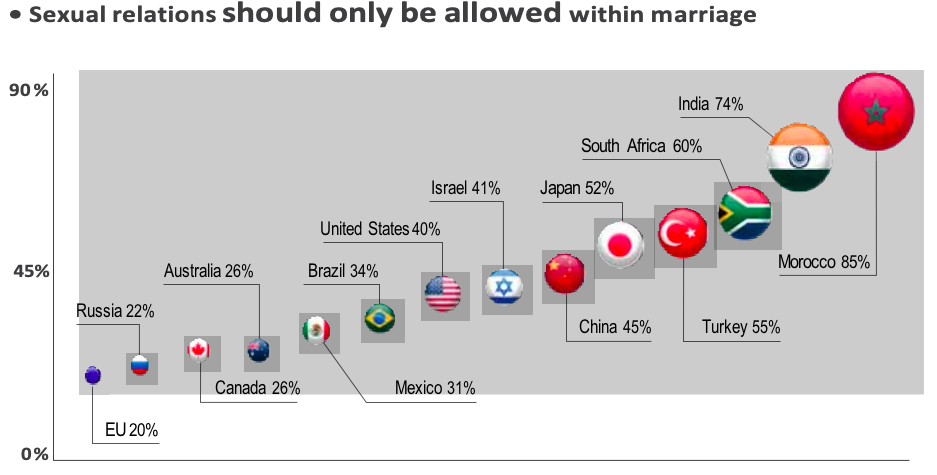
the youths least comfortable with this are the Moroccans (40%), Israelis (38%), Turks (37%) and Chinese (30%). In some countries, youths are less tolerant than their elders, as can be seen in Poland (22% of young people are uncom- fortable vs. 10% of their elders), in Romania (29% vs. 18%), in Estonia (18% vs. 9%) and in Greece (14% vs. 6%).
Is gender equality becoming consensual?
Young Westerners consider equality between women and men one of the characteristics of their ideal society (94% of Americans and French, 93% of Canadians and Spaniards and 91% of Germans, Finns, Australians and British). Moroccan youths are the most unwilling to agree that women and men are equal and have the same rights, since 50% of the
Moroccans did not select this criterion to define their ideal society. Similarly but to a lesser extent, the Japanese (30%), Israeli (24%) and Turkish (20%) youths agree with them.
According to Indian youths, technology does not make people happy
Twenty-six percent of young Europeans believe that people would be happier without modern technology. This opinion is shared by 37% of Romanians, as opposed to only 17% of Estonians, whose enthusiasm for technology is well-known. There are even more Indians who lack confidence in the benefits of modern technology (51%), along with Turks (47%), Moroccans (47%) and Israelis (47%).
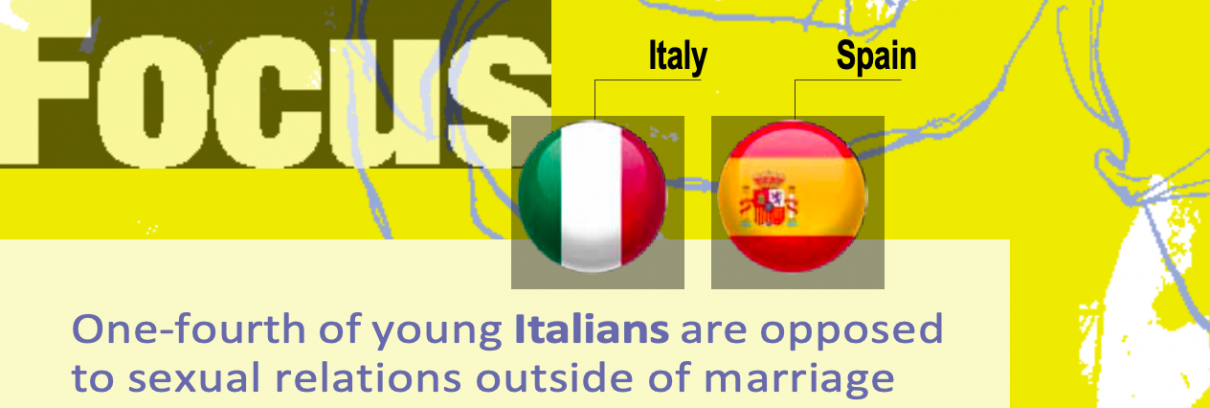
On certain topics, European youths show a lar- gely undocumented attachment to formalism. Most obvious are the contrasting positions taken with regard to religion: 45% of the Italians believe that it constitutes an important factor for their identity, as compared to 24% of Spaniards. The same applies to sexual relations outside of marriage: 24% of the Italians oppose it vs. 17% of the Spaniards. Both youths believe that the family should be the foundation of society, with Italians (78%) believing it more than the Spaniards (71%). The latter seem to be more liberal than the Italians with regard to people whose sexual orientation is different from theirs. Only 8% of them acknowledge that this bothers them, vs. 14% of the Italians. Lastly, although both youths consider that their ideal society should be characterised by gender equality, the Spaniards affirm it more strongly (93%) than the Italians (87%).
Religion is an important contributing factor for my personal identity
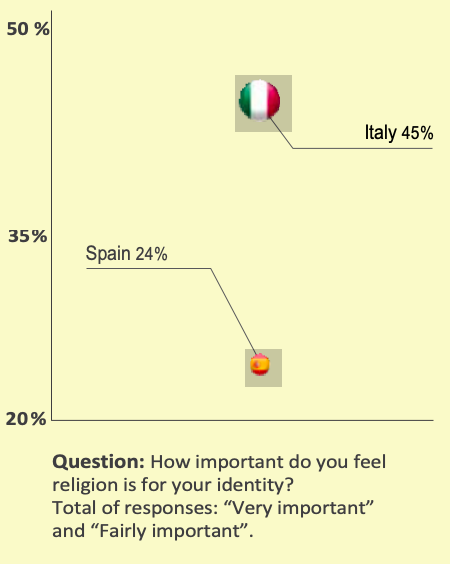

The Internet has not lessened interest in cultural activities
Contrary to what might be expected, new tech- nologies have not drastically changed young people’s cultural consumption habits: although 83% of them are interested in surfing the Internet, an equal number say that they like rea- ding (73%), going to the cinema and the theatre (76%), watching TV (69%), travelling (88%) and listening to music (87%).
Playing computer games, so often criticised, attracts only 59% of the 16 to 29 age group and comes after practi- sing sports (71%) and going to museums and exhibitions (61%). While youths show less interest in reading than their elders (- 7 points), there is no significant difference in interest between the 16 to 29 and 30 to 50 age groups as far as other cultural activities are concerned.>>>
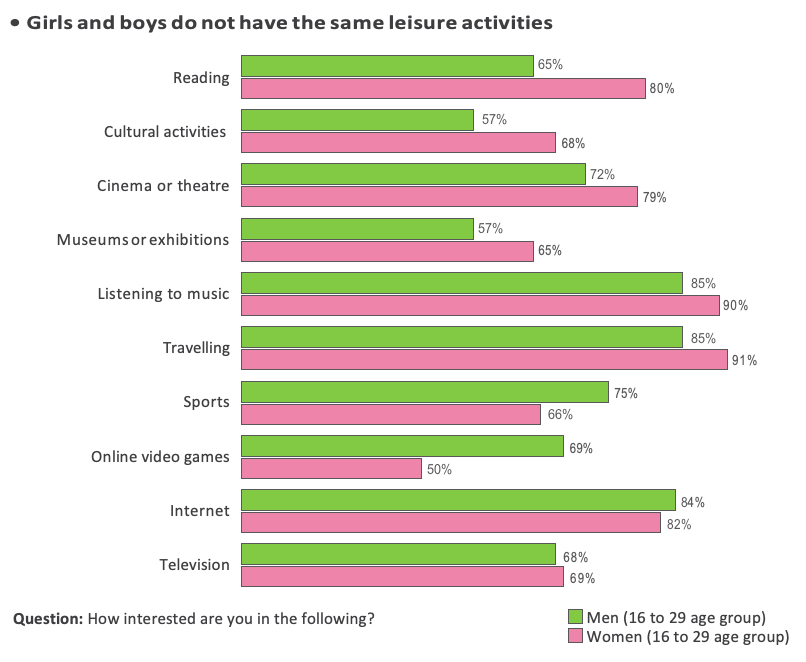
>>> The cinema is very popular in France and in the United States
The Americans (81%) and the French (83%) seem to love the cinema. The Italians show special interest in participating in cultural and artistic activities (70%, as opposed to 59% of the Europeans) and in going to museums and exhibitions (67%, as opposed to 57% of the Europeans). Reading is of little interest to East European youths (62% of Estonians and 63% of Romanians as compared, for example, to 76% of the Italians). The Hungarians are even less interested in reading (61%) or in the other activities, with the exception of playing com- puter games, which seems to captivate them (67%, as opposed to 55% of the Europeans). Lastly, youths from emerging countries such as India and China, and to a lesser extent Brazil, Mexico, Turkey and Morocco, seem massively interested in each of the cultural activities. This may be attributed to the fact that, in these countries, affluent categories were over-repre- sented in the survey’s Internet samplings.
Appearances matter, especially in Eastern Europe.
Young people are more concerned about how good they look than their elders, as evidenced by 83% of the 16 to 29 age group, vs. 77% of the 30 to 50 year-olds. The importance given to beauty is greater among women (85%) than men (80%), and among the 16 to 19 age group (85%) than the 40 to 50 year-olds (74%). Similarly, youths are more concerned about being fashionable (49% of the 16 to 29 age group vs. 42% of the 30 to 50 year-olds). There are a particularly large number of youths in the 16 to 19 age group who think that it is impor- tant to be fashionable (53% vs. 38% of the 40 to 50 age group). Eastern European youths seem to be more concerned about style, except for the Estonians, who place less value in being fashionable (only 39%). Indian youths assert >>>

Eastern European youths seem to be preoccu- pied by how they look: 75% of Hungarians, 78% of Poles and 79% of Romanians believe that it is important to be fashionable as opposed to a mean of 45% for young Europeans. Similarly, 92% of Romanians, 87% of Poles and 84% of Hungarians think it is important to look good, compared to 76% of youths in the EU.
Nonetheless, these similarities conceal notable gender variations. The response distribution follows an unexpected gender pattern in Hungary, in which men (77%) assign more importance to being fashionable than women do (72%), and slightly more to looking good (85% of the men vs. 83% of the women).
On the other hand, 82% of Polish women say that it is important to be fashionable, and 91% to look good, vs. Polish men’s scores of 74% and 84% respectively. In Romania, 81% of young women stress the importance of being fashionable, as compared to 76% of the young men. Yet looking good is just as important to Romanian men (92%) as it is to Romanian women (91%).
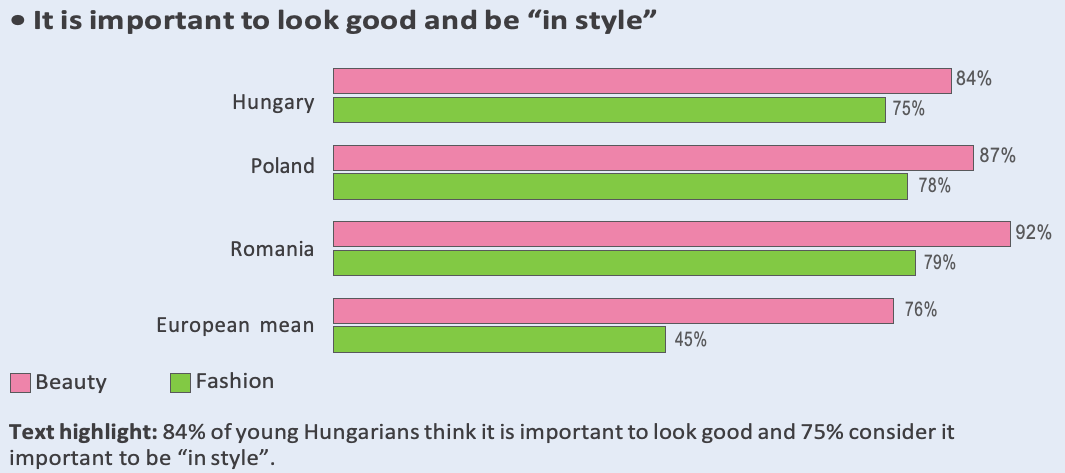

If youths are keen on new technologies, the British are its champions. Computers occupy most of their free time: 89% of them enjoy surfing the Internet and 60% like playing computer games. Eighty-two per- cent of the British also enjoy watching TV, whereas the European mean is about 69%. However, it is in Internet use that their fondness for new technologies is most evident. One out of two British youths uses a mobile phone to surf the Internet, the European mean being of 34%. Lastly, more youths use social networks (49%, vs. a European mean of 34%) and do their shopping online (37%, as compared to 26% of Europeans). Generally speaking, we should point out that Anglo-Saxons and Scandinavians typically use the Web in a wider variety of ways.
Ultimately, watching television or playing computer games seems to be chosen to the detriment of other pastimes, particularly participating in cultural and artistic activities (only one out of two British youths is interested in the latter, vs. 59% of Europeans) or prac- tising sports (55%, as compared to 69% of Europeans). Although this trend appears to be national rather than generational (only 35% of the British in the 30 to 50 age group practice a sport), this raises the question of whether British youths’ keenness for computers and high-tech may render them more vulnerable to civili- sation’s illnesses, such as a very sedentary lifestyle.
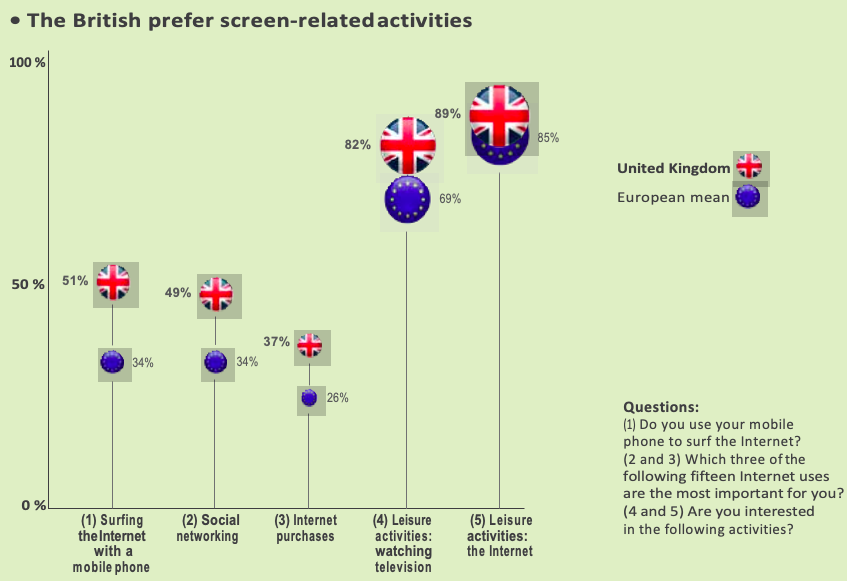
>>> that they are keenly interested in beauty and fashion: 94% feel that it is important to look good and 80% believe that style matters.
Online activities are increasingly popular…
Our survey results also indicate the growing role of new technologies in daily life. While the 16 to 29 age group (62%) and those aged 30 to 50 (63%) equally value the digital world’s contribution to their lives, young people appear more likely to profit from the opportunities offered by the Web. They do not just use it for reading, sending e-mails or keeping up with the news, but view the Internet as a special place fully dedicated to promoting their social lives. More youths than their elders therefore indulge in social networking (37% of youths vs. 27% of their elders) and chatting with friends and family (21% vs. 15%). What is more, for them the Web is an entertainment platform on which listen to music, watch videos, download music and videos, and play online video games. A major part of young people’s lives now takes place on the Internet, where many of them go shopping (18%) and work or study (32%). In fact, so much of young people’s social lives seems to occur online that one may well wonder if it is still possible to distinguish between the virtual and the real world. Yet some rankings do vary from one region to the next: while chat- ting is particularly popular in Eastern Europe (4 to 12 points higher than the mean according to country), social networking is more popular in English-speaking and Scandinavian countries (7 to 17 points higher than the mean), while Southern Europe typically opts for a more tra- ditional use of the Web limited to e-mails, wor- king and keeping up with the news.
Young people are the most common users of mobile phones to surf the Internet: 38%, as compared to only 27% of their elders, a gap which exceeds 15 points in Australia, Estonia, France, the United Kingdom, Japan, China and South Africa. A particularly large number of British youths (51 %) favour this method of accessing the Internet, which confirms their interest in new technologies.
… but there are still material needs to consider.
Despite the importance youths assign to leisure pastimes and new technologies, they have not forgotten their more material needs, the first of which is housing. The real estate market may be bolstered by their persistent goal of owning a house or flat (56%). Another unex- pected finding is that, although young people acknowledge that having enough food is obviously one criteria for a good life, it is para- doxically the youths of rich countries such as France (21%), Finland (16%), Australia (16%) and Japan (18%) who assign the most impor- tance to meeting this basic need.

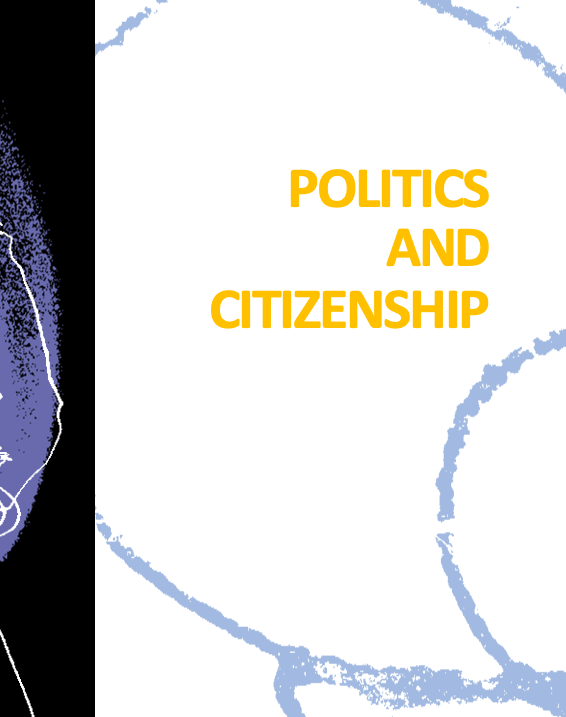
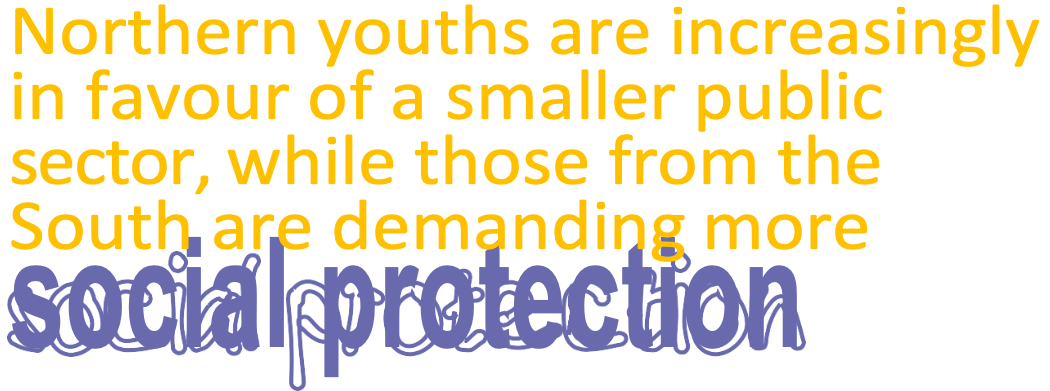
The young are more in favour of a society where individual performance is rewarded
For 52% of European youths, the ideal society is one where wealth is evenly distributed, while 47% of them believe that it is one where individual performance is rewarded. Among the youths emphasising equality are the Finns and the French (67%), the Italians (60%), the Swedes (58%), as well as the Brazilians (62%) and the Turks (63%). On the other hand, Russian (83%) and American and South African (65%) youths favour rewarding indi- vidual performance.
There are some noteworthy intergenerational disparities. In China, for example, 47% of youths most value rewarding individual per- formance, vs. 37% of the 30 to 50 age group. Comparable variations are found in Italy, the United States, Canada, Sweden, Australia, Germany, the United Kingdom and France. Conversely, young Estonians, Romanians, South Africans, Russians and Mexicans opt for an even distribution of wealth more often than their elders do.
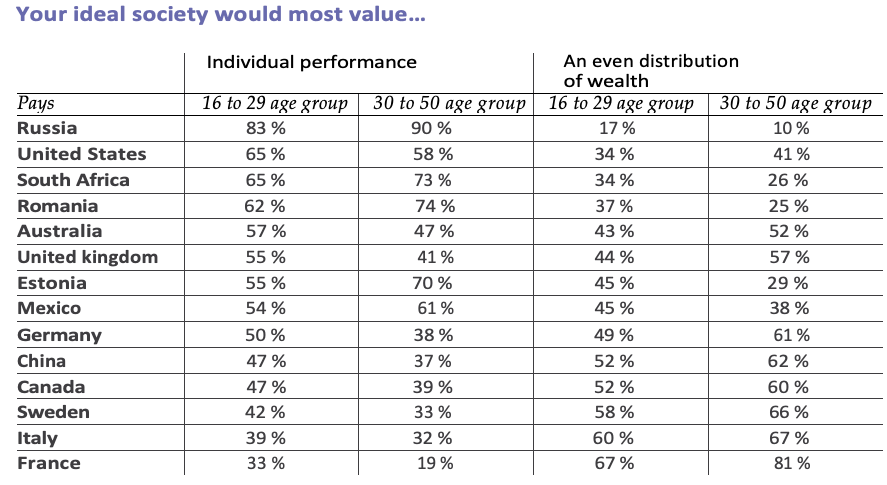
The Anglo-Saxons prefer a society which would require paying the least taxes possible over a society with the strongest welfare system pos- sible: this desire for less fiscal pressure prevails among the Americans (72%), Canadians (62%) and Australians (52%). The British opinion is more ambivalent (49% for each of the two options), which is also true of the Israelis. In Europe, it is the Italians (51%) who most firmly choose a society which would require paying minimum taxes.
A demand for social protection
Among those advocating the strongest welfare system possible are the Swedes (71%), but to an even greater extent the young people of China (86%), Russia (82%), Turkey (78%) and Mexico (75%). Greek youths express a particularly firm preference for the strongest welfare system possible (76%), which may be imputed to the adverse effects of the serious economic crisis endured by this country.
English-speaking youths oppose extensive social benefits
Being able to refuse a job which does not correspond to one’s qualifications without having to lose unemployment benefits is not considered to be a right by 63% of the British, 52% of the Italians and Australians, 51% of the South Africans and 49% of the Americans. However, 63% of the French consider this a right, as do 67% of the Greeks and 58% of the Spaniards. As might be expected, is such percentages are higher in countries with a strong social welfare tradition, such as Finland (62%) and Sweden (70%). Young Europeans are overwhelmingly in favour of a free university education (85% vs. 71% in the United States) and of the right to get free heal- thcare for people who have no income (85% vs. 64% in the United States).
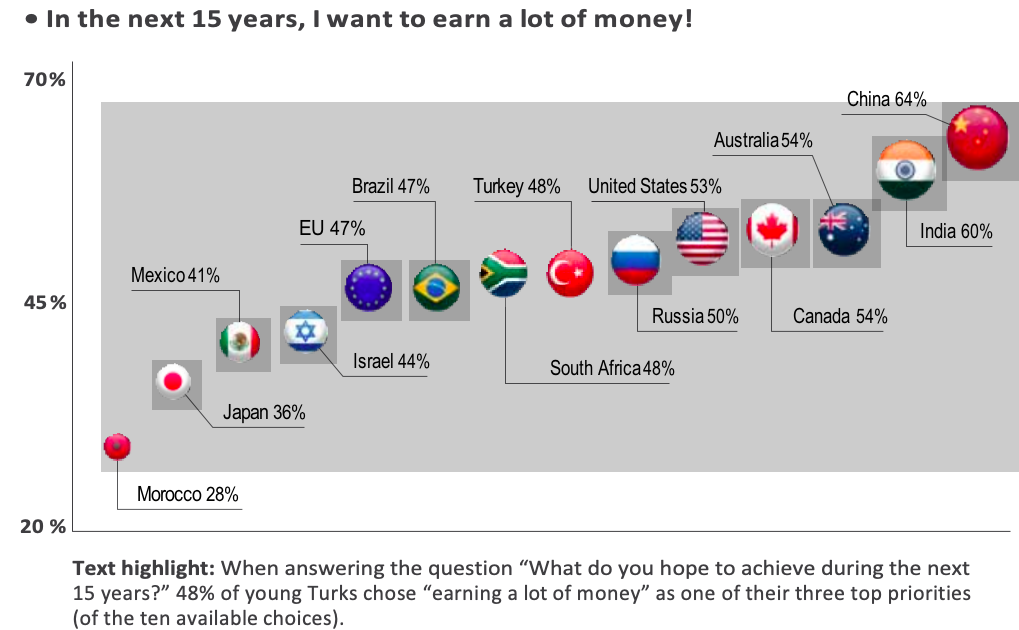
>>> For Chinese and Indian youths, money is happiness
Sixty-four percent of the Indians, 57% of the Chinese and 49% of the Israelis claim to be proud of the rich people in their country, a significant variance compared to the French (16%), Estonians and Spaniards (18%), Greeks and Mexicans (20%) and Finns (21%). Turkey is the only country in which the 16 to 29 age group is considerably less proud (41%) of their rich people than the 30 to 50 year-olds (47%).
Moreover, 34% of Chinese and 41% of Indian youths think that earning a lot of money constitutes an important criteria for a good life. Similarly, these two countries’ youths consider earning a lot of money as a goal which they hope to achieve during the next fifteen years: 64% of the Chinese and 60% of the Indians. This goal is not just the preroga- tive of youths from emerging countries, as it is also very popular among young Australians, Canadians and Germans (54%) and Americans (53%). Earning a lot of money is less vital to the Italians (39%), Greeks (37%), Japanese (36%) and Hungarians (33%). Interestingly, this goal is shared by 48% of the French, a figure which corresponds to the European mean (47%).

When asked to choose between paying the least taxes possible and having the strongest wel- fare system possible, 62% of the Canadians and 52% of the Australians opt for the former. Their number is exceeded only by young Americans, of whom 72% prefer a minimally taxed society. Naturally, this preference for a lower tax liability does not equate to a refusal to pay taxes: 89% of Americans, 87% of Australians and 84% of Canadians admit that everyone should pay their taxes.

Thirty-nine percent of young Europeans do not wish to pay their elders’ pensions…
Young people are much more divided than it may seem on the issue of financial solidarity with older generations. This lack of solidarity is more pronounced in rich countries which are facing serious demographic problems. For example, 52% of Greeks, 50% of Japanese, 47% of Americans and 46% of Italians say that they are not prepared to pay for the pensions of older generations, and 44% of Canadian and 39% of French youths agree.
Overall, 39% of young Europeans say that they should not have to fund their elders’ pensions.
…only 21% of Russian youths share this opinion
In total contrast with young people from rich countries, 83% of Indians, 77% of Chinese, 76% of Moroccans and 73% of Russians say
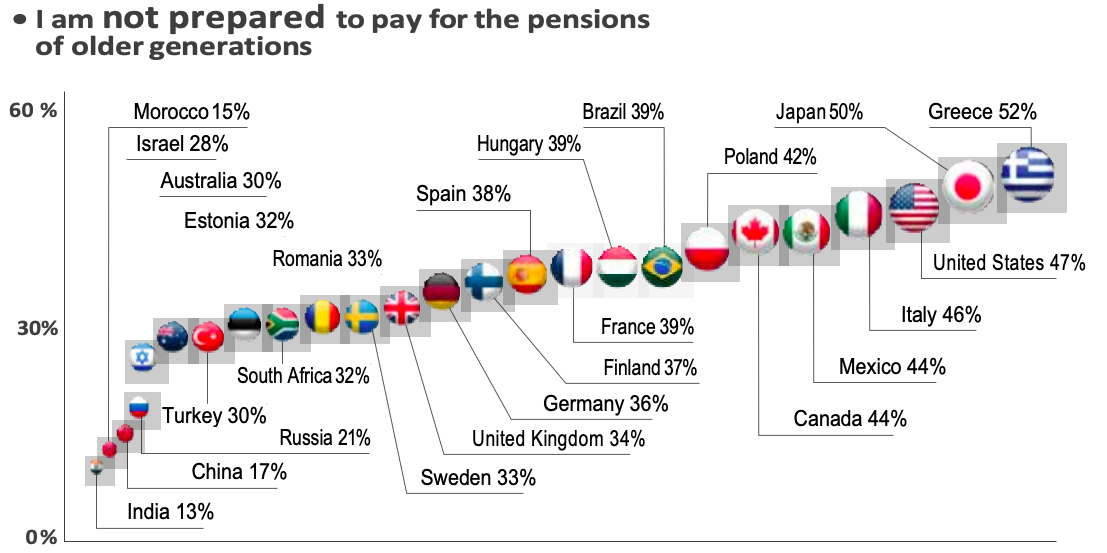
that they are prepared to pay for the pensions of older generations. Among the emerging powers, relatively few Brazilian youths are willing to do so (54%) and if their number is greater than those in the 30 to 50 age group (48%), there is still a significant proportion of young people unwilling to make this effort (39%).
In Eastern Europe, a region significantly impacted by its ageing population, the youths’ opinions are split: although 63% of Estonians and 60% of Romanians say that they are pre- pared to pay for the pensions of older genera- tions, only 46% of the Poles agree. Self-funded retirement plans are not the sole reason for this result: the Poles have based their dual system on the German model, yet more German youths (56%) are willing to fund their elders’ retire- ment pensions than the Poles (46%).
One notable trend within the European Union is that the 16 to 29 age group shows less sup- port for older generations (52%) than the 30 to 50 age group (58%), a variance particularly pronounced in Romania (- 15 points), Estonia (- 12 points), as well as in Spain, Italy and Sweden (- 8 points).
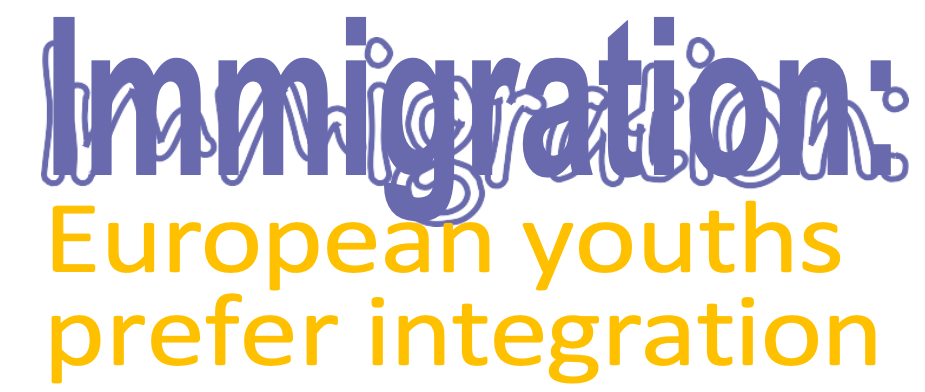
Young people from emigration countries are more in favour of the multicultural model
It is the young Chinese who most favour a society where immigrants can retain their tra- ditions and cultures (85%), as opposed to a society into which immigrants must integrate, followed by Mexicans (75%), Brazilians (75%), Poles (71%), Indians (68%), South Africans (66%) and Moroccans (63%). Conversely, most young Europeans overwhelmingly opt for immi- grant integration, as shown by the responses of the Spaniards (68%), Germans and French (67%) and British (66%). Interestingly, in these four countries, many more youths than 30 to 50 year-olds prefer a society in which immi- grants can retain their traditions (+ 17 points in France, + 12 points in the United Kingdom, + 10 points in Spain and + 9 points in Germany). An analysis of the findings reveals that those youths most in favour of perpetuating immigrant traditions and cultures in their receiving country originate from emigration countries such as China, Mexico, Poland, India and Morocco. On the other hand, youths from countries that wel- come large numbers of immigrants are the most attached to the idea of integration: Germany, France, and the United Kingdom. This fact is also evident at the European level between Eastern Europe – which, with the exception of Estonia, is favourable to immigrants’ retaining their homeland culture – and Western Europe, which prefers that they integrate.
It is notably on this level that the American culture stands out, with a majority of young people (57%) favouring a multicultural model, an opinion less shared, however, by the 30 to 50 age group (48%). American youths therefore represent the only case of an immigration country advocating that immigrants should be allowed to retain their original cultures.
Young people’s opinions are divided over the issue of religious symbols in the workplace
The youths most in favour of wearing religious symbols in the workplace are those of Morocco (66%), Israel (65%), the United States (65%) and Poland (61%), where religion plays a major political and societal role. At the other end of the spectrum, the Japanese are the least in favour of it (19%). The situation is mixed in countries receiving populations from Muslim countries. Among the latter, the French are the least in favour (22%) of wearing religious symbols in the workplace. Germans are also opposed to it, but in less significant proportions (42% accept it). The majority of the British, however, are in favour of it (57%).
This diversity of opinion, in which emigra- tion countries defend multiculturalism and immigration countries favour integration, sug- gests a potentially sizeable controversy over cultural co-habitation in European countries. Disagreement is particularly strong between young Moroccans, who defend the wearing of
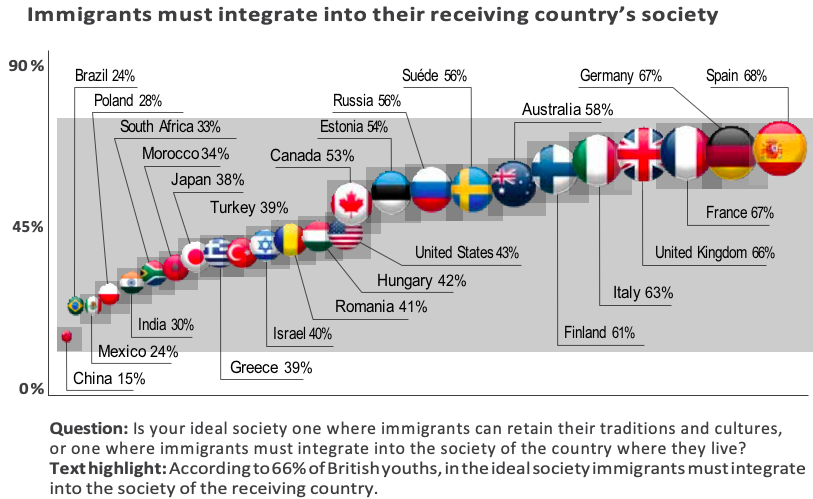
religious symbols (66%) and the French, who strongly oppose it (71%). The Germans and Turks are less divided on this issue, both in terms of opposition (52% of the Germans and 47% of the Turks) and of support (42% of the Germans and 50% of the Turks). On the other hand, British youths are more tolerant of the wearing of religious symbols (57%) than the Indians (46%).
France, Germany, United kingdom: A distrust of Muslims
Generally speaking, negative opinions towards Muslims are quite widespread among young people. In Europe, Spanish (42%), German (37%), French (37%), Swedish (35%) and British (32%) youths express the most negative opinions regarding Muslims.
The youths expressing the least negative opinions are the Poles (17%) and Romanians (14%). Worldwide, most critical are the Israeli (37%), Australian (32%) and Canadian (29%) youths. Despite the traumatic impact of September 11th, young Americans are the ones who harbour the least negative feelings towards Muslims (24%), along with Russians (19%), in spite of the tensions in the Caucasus region. Those having the least widespread negative opinions are the Indian (16%), Japanese (14%), Brazilian (13%), Chinese (8%) and Turkish (5%) youths.4

Parliament and government: Distrustful Europeans
Although 71% of Chinese and Indian youths claim to trust their government, scepticism pre- vails among Europeans. Swedish youths are the only ones whose majority claims to trust their government (51%). The Moroccans and Israelis also express a strong feeling of trust in their government (60%). At the other extreme are the Mexicans (14%), French (17%), Spaniards and Italians (20%). Trust in their parliament is still very weak in countries where young people highly distrust their government, as confirmed by results in Greece, Romania and South Africa, where trust in these two institutions did not exceed one-fourth of the youths polled.
However, one point seems to win a consensus among all youths worldwide: they are slightly less distrustful of these political institutions than their elders. The gap between the 16 to 29 and the 30 to 50 age groups is sometimes signi- ficant, as seen in Morocco (+ 15 points), Greece (+ 10 points), the United Kingdom and Estonia (+ 9 points). India appears to be an exception, since trust in the government is less evident among the 16 to 29 age group (71%) than among the 30 to 50 year-olds (78%), and 66% of its youths trust their parliament, as compared to 76% of their elders.
Less criticism of sovereign institutions
In all countries surveyed, the army is trusted by at least 40% of youths, with the exception of the Japanese (36%). The Russians (41%) and Germans (43%) express a rather weak trust in their armies. On the other hand, it is ove- rwhelmingly supported by the Indians (93%), Chinese (84%) and Israelis (80%). In Europe, Finnish and British youths (67%) are those who show the most trust in their armies.
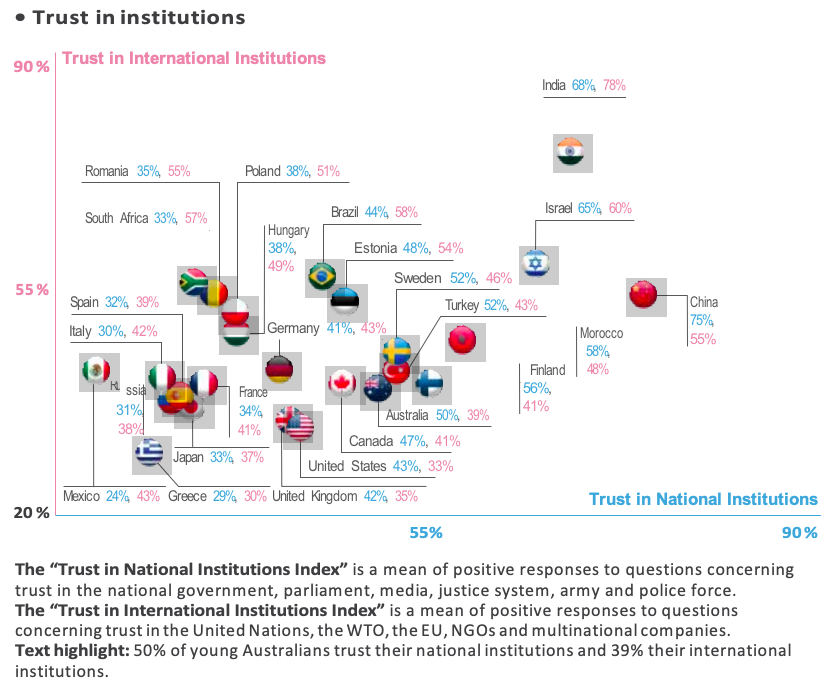
In Finland (74%), India (71%), Sweden and Australia (68%), as well as in China and Israel (64%), young people express strong trust in their police force. Those showing the least trust are the Mexicans (17%), Russians (23%), South Africans (35%) and Greeks (37%).
Young people are even more distrustful of their justice system, while those most trustful remain the Indians (74%), Israelis (71%) and Chinese (64%). Young Mexicans (19%), Russians (29%) and Southern Europeans differentiate themselves by their low level of trust in their justice system (Italy 28%, Spain 30%, Greece 32%).
Lastly, the media are also victims of this lack of trust, notably among European youths. The Finns are the only ones who trust them in the majority (61%). Trust in the media is stronger in Eastern Europe (Estonia, 47%; Romania, 35%; Poland, 32%) than in Western Europe (Italy, 20% and France, 23%). Young Indians (72%),
Israelis (58%), Chinese (54%) and Moroccans (53%) indicate the greatest trust in their media. >>>
>>> Young people favour multilateralism
Eighty percent of young Indians, 66% of Brazilians, 64% of Chinese and South Africans, and 62% of Israelis trust the United Nations (UN). Conversely, the youths of Turkey and Morocco (40%), Russia (41%) and Japan (43%) express a more limited trust. Young people show more trust in the UN than the 30 to 50 year-olds do: the gaps between them are occasionally substantial, as in Morocco, Israel and Greece – which does not prevent young Greeks from being the least trusting (36%).
The World Trade Organization (WTO) inspires less trust than the UN, but everywhere – with the exception of Russia – young people trust it at least as much, and often more, than their elders do. Emerging countries which have been outspoken about its worth in the last few years see their youths placing greater trust in it, as do the Indians (81%), Chinese (62%), South Africans (60%) and Brazilians (55%).
Greek (28%), Spanish (30%), Russian (35%), American (37%), Italian and French (38%) youths express the lowest levels of trust in the WTO.

Mexicans express a record distrust of all of their national institutions, with the exception of their army. One-third trust their media and religious ins- titutions, but only 14% of Mexicans express trust in their government and 16% in their parliament. The trust placed by Mexican youths in their police force (17%) and justice system (19%) is scarcely stronger. Even more surprisingly, they show little trust (44%) in people in general.
Regrettably, Mexico has one of the world’s ten highest homicide rates, which is directly linked to turf wars between drug lords. Most of the 40-some people who die there daily are under 25 years old. These figures undoubtedly help to explain the very low trust which young Mexicans place in their institutions.
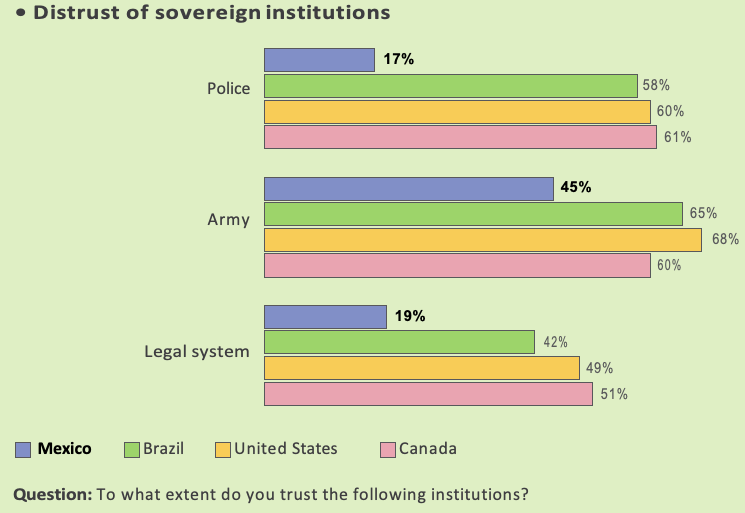
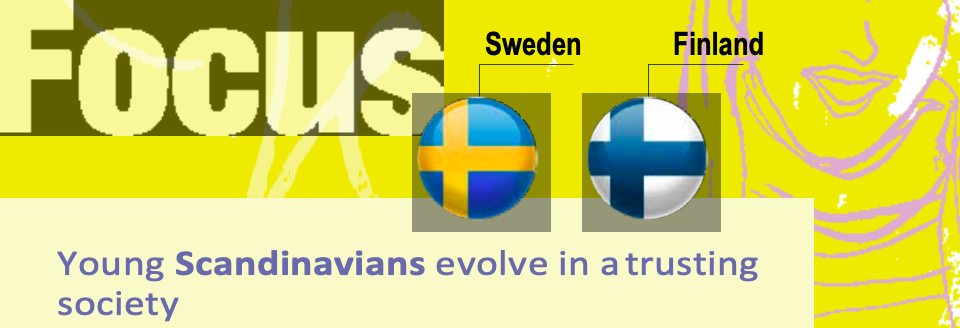
Young Swedes stand out because of their rela- tively high level of trust in their parliament (50%) and government (51%) – which scores the highest along with India and Israel, among democratic countries. These figures are 36% and 40% respectively for the Finns, as compared to 23% and 25% on average among all European youths. A more inclusive and protective welfare system and a consensus-based political system may help to explain the Nordic youths’ less distrustful attitude.
Similarly, in these two countries, sovereign insti- tutions arouse less distrust among young people: 55% believe in their justice system (as opposed to 41% in the European Union) and 74% of the Finns and 68% of the Swedes trust their police force, as opposed to an average of 51% within the EU. Lastly, young Scandinavians are more willing to trust people in general (71% in Sweden, 68% in Finland) than other Europeans (55% on average, and only 43% in France).
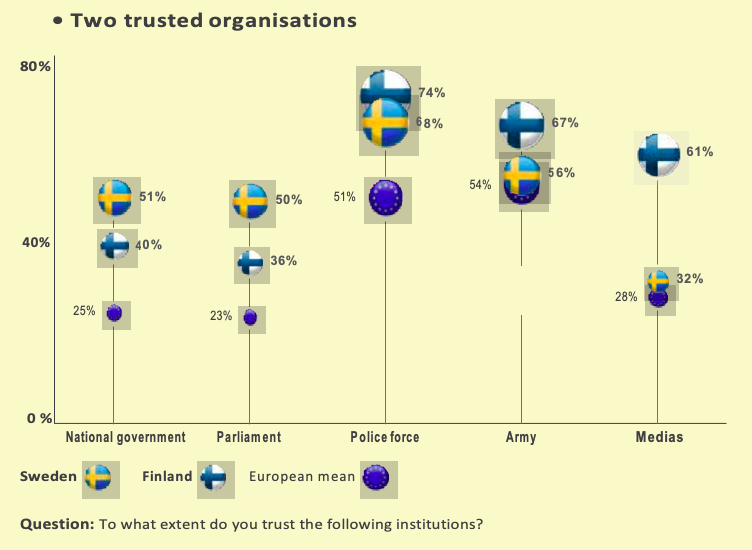

«My life is in my own hands»
Young people are convinced that their lives are in their own hands (79%). This sentiment is particularly prevalent among Estonian (90%), Russian (89%) and Polish (88%), as well as Indian (90%) and Mexican (87%) youths. It should be noted that this conviction is not as prevalent among Hungarian, Greek and Turkish youths (67%) and even less among the Japanese (46%).
Teaching children to be independent
Young people think that children should be taught to be independent. Young Estonians (45%), Hungarians (50%) and Chinese (58%), in particular, think that independence is one of the qualities which children should be most encouraged to learn at home. In that respect, French youths stand out because they assign less importance to independence (12%), preferring to inculcate a sense of obedience in their children (36%).
Choosing a partner: Young people still seek family approval
Of the youths surveyed, nearly all of the Chinese (92%), Indians (91%) and South Africans (90%) believe that it is important to them that their family accepts their partner/spouse/girl- friend/boyfriend. This opinion is only slightly less shared by the Russians (85%), Europeans (83%), Americans (82%) and Japanese (79%). Thus, young people assign considerable impor- tance to the family circle’s approval of their choice of a partner.
Youths are willing to be disobedient in order to fight injustice
Young people say that they are prepared to rebel against injustice. Worldwide, nearly one out of two youths (49%) agrees that it is acceptable to break the law to fight injustice in society. On average, this opinion is shared by 47% of young Europeans (vs. 44% who disagree), and by 42% of the British, 51% of the Greeks, 57% of the French and 60% of the Spaniards. >>>
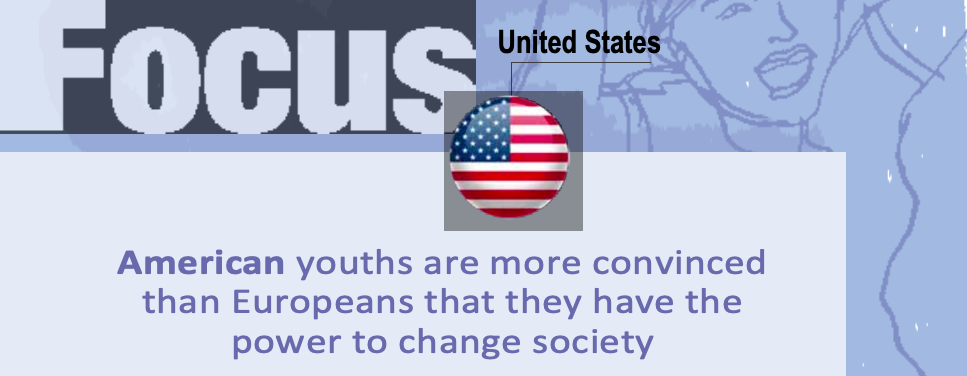
Only 35% of American youths state that they are satisfied with the general situation in their country. Although this percentage far exceeds that of the young Mexicans (9%) and Europeans (27%), it constitutes a much lower satisfaction rate than that of the Canadians (68%), Australians and Chinese (61%).
Yet optimism prevails, since 87% of young Americans think that people can change society through their choices and actions. Such an opti- mism is shared by young Brazilians (90%), Indians (86%) and even Chinese (84%).
As for themselves and their fellow citizens, American youths strongly feel that they have the opportunity to choose their own lives (86%). With regard to themselves, an equal number of young Americans (86%) believe that their lives are in their own hands, a view less widely accepted by European youths (79%) but shared to the same extent by the Chinese (83%), Brazilians (84%) and Indians (90%).
When asked to define their ideal society, more young Americans (59%) than Europeans (49%) emphasise tradition and stability rather than change. One out of two Europeans (50%) claims to prefer change over stability, as opposed to 41% of Americans. The American youths’ opinion about this is all the more singular in that it is shared by the Brazilians (57%), Turks (61%) and Mexicans (69%).
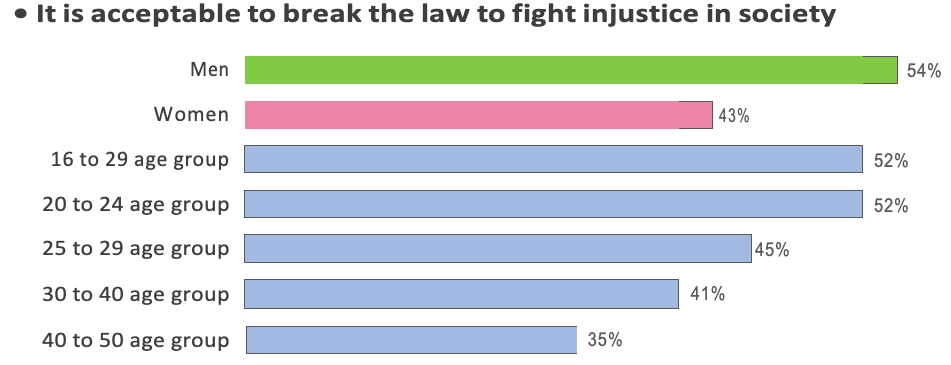
>>> The youths of major emerging democra- cies agree with this statement, including the Brazilians (54%), and to a greater extent the Indians (71%). Lastly, perhaps one of the most noteworthy findings in our survey is that 47% of the Chinese surveyed say that they agree with the idea that it is acceptable to break the law to fight injustice in society.
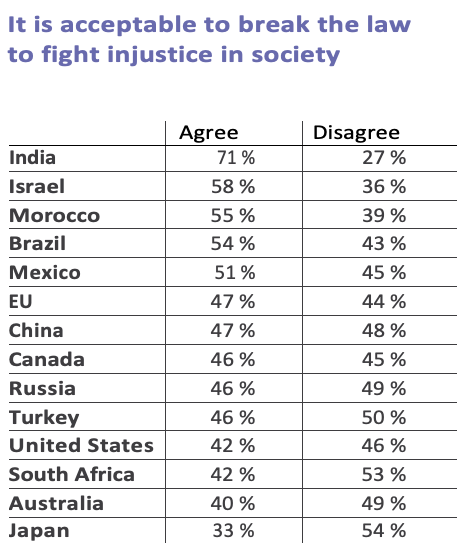
Are you willing to die for your country?
When asked if they are willing to go to war and die in order to defend their country, young Europeans overwhelmingly respond “no” (59%). Those most hostile to the idea are the Spaniards (75%), Italians (72%) and Germans (65%), while the French are in line with the European mean (59%). Surprisingly, British youths are no more willing to die for their country (56%). On the other hand, the idea of dying in a war to defend their country is approved by a relative majority of young people in Romania, Poland (47%) and Finland (48%), and by an absolute majority in Greece (55%). American youths are somewhat willing to die for their country (47%). The young people most opposed to the idea are the Russians (58%) and Japanese (80%). Conversely, the youths least willing to make the ultimate sacrifice are the Israelis (67%), Moroccans (69%), Turks (71%), Chinese (71%) and Indians (76%).

When asked to give their opinion as to which are the greatest threats to society, 47% of the Germans choose “war,” and an equal number “poverty and famine” (48%). Fear of war is greater than fear of unemployment, the collapse of the international financial system, terrorism, or even pollution. It should be pointed out that the fear of war is lower among young people than it is among the 30 to 50 age group (55%). The Japanese (67%), Russians (54%), Poles (53%), Chinese (43%) and Israelis (46%) – for whom fear of war is second only to terrorism (49%) – are the youths who most often consider war as the greatest threat to society

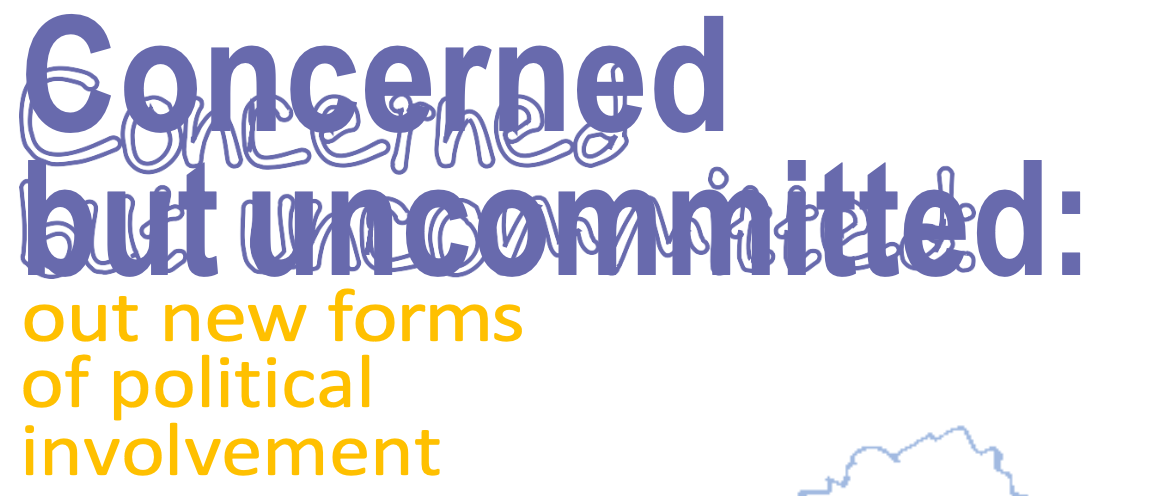
Voting is still a duty
Eight-one percent of the youths believe that voting is an obligation. This very high score is found worldwide, with the exception of young Finns (66%). The youths of India, the world’s biggest democracy, score highest in terms of this citizen duty (94%), followed by young Turks (92%) and Mexicans (90%). Thus, despite a strong distrust of institutions and politicians, young people remain attached to voting – a core process of the democratic system – but that does not prevent abstention rates from being espe- cially high among the 16 to 29 age group.
Activism has lost its appeal
Although voting is perceived as a duty, young people’s involvement in politics does not include becoming a political party activist. This form of commitment appeals more to the Moroccans (42%) and Indians (37%) than to the Mexicans (25%), Brazilians (26%) and Turks (27%). However, the youths of these countries display a greater commitment to activism than those of rich countries, as shown by the Japanese (10%), French (12%), Australian (13%), German (14%) and Canadian (15%) youths, even though the Swedes (23%), Italians (22%) and Americans (21%) indicate considerable interest in political activism. Two particular cases should be highlighted: that of a democratic and rich country, Israel, whose youths express the strongest interest in political activism (47%), and that of China (33%), whose significance has yet to be interpreted.
The youths surveyed believe that becoming involved in an association is preferable to poli- tical commitment. In India (60%) and Morocco (63%), young people are interested in becoming involved in an association, as is also the case in Mexico (49%), Brazil (45%), Turkey (42%), China (38%) and South Africa (37%). In the rich countries, young French (46%) and Israelis (56%) stand out by displaying the strongest interest. Within the European Union, other youths seem relatively inclined to take part in association activities, which also applies to Romania (47%), Greece (38%) and Germany (36%). However, neither young Europeans as a whole (35%), nor their American counterparts (34%) compete with the emerging countries. The Japanese (12%) and Russians (19%) are the least interested in becoming involved in an association.
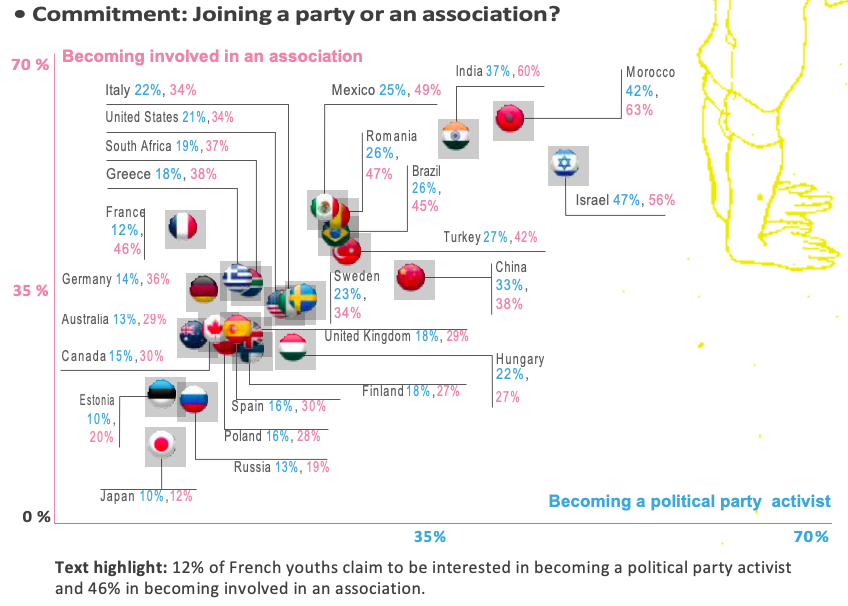

Young Brazilians stand out because of their high level of compassion for others. One out of three of them believes that having a job that contributes positively to society is important. A high percentage (81%) are willing to help those in need, by devoting part of their time to them or by giving them money. The idea that the poorest individuals should get free healthcare if they have no income is unanimously shared (94%), whereas this figure is lower in Europe (85%) and in the United States (64%).
In most countries, the 16 to 29 age group say that they are less prepared than the 30 to 50 year- olds to pay for the pensions of older generations. Young Brazilians are the exception, since 54% of the 16 to 29 age group say they are prepared to fund their retirement, compared to 48% of the 30 to 50 year-olds.
Similarly, the Brazilians are primarily egalitarian: 62% of them prefer a society where wealth is evenly distributed rather than a society where individual performance is rewarded, a response level similar to that of France and Scandinavian countries, and distinctly dissimilar to that of other emerging countries: 42% of Indians, 34% of South Africans and only 17% of Russians prefer equality over individual performance. More surprisingly, 93% of young Brazilians feel that it is important to contribute to other people’s happiness, as compared to 66% of the Japanese, who – of all the youths surveyed – are the least receptive to this idea.
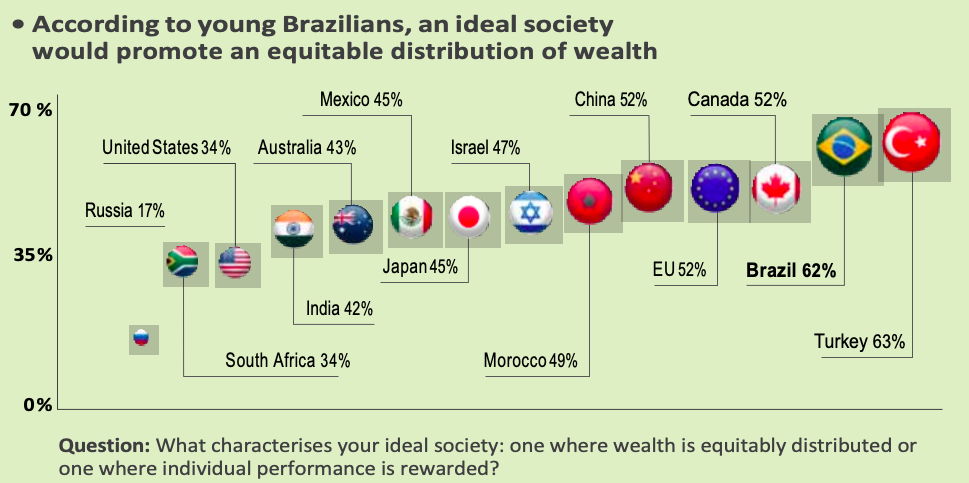

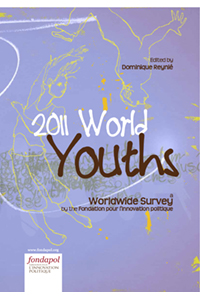

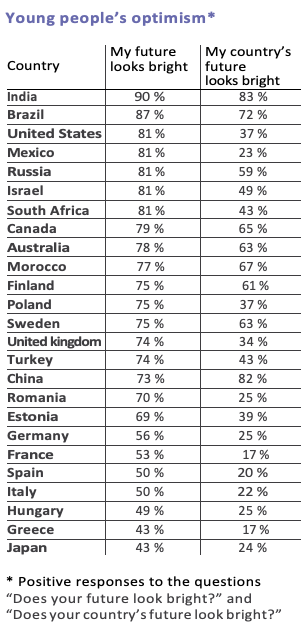
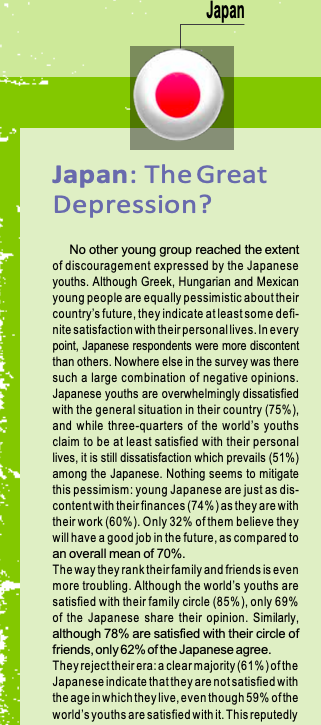
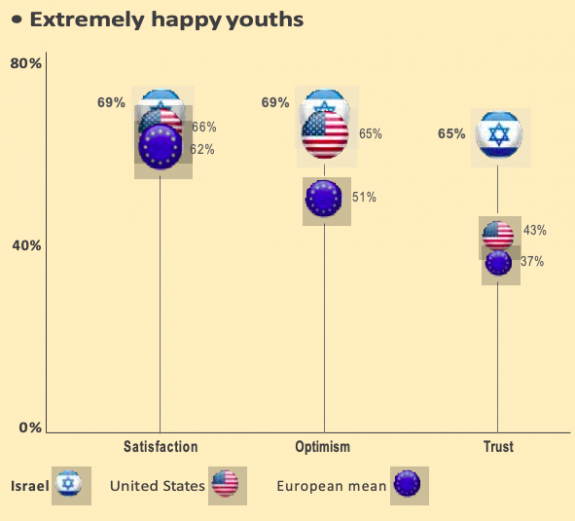
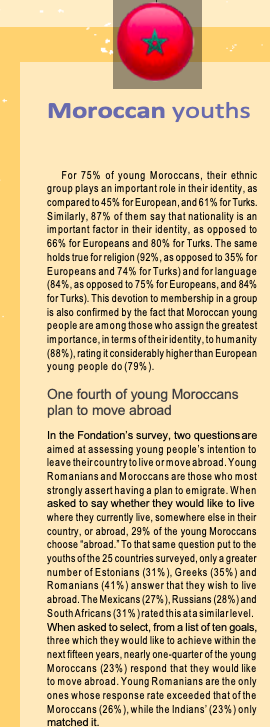
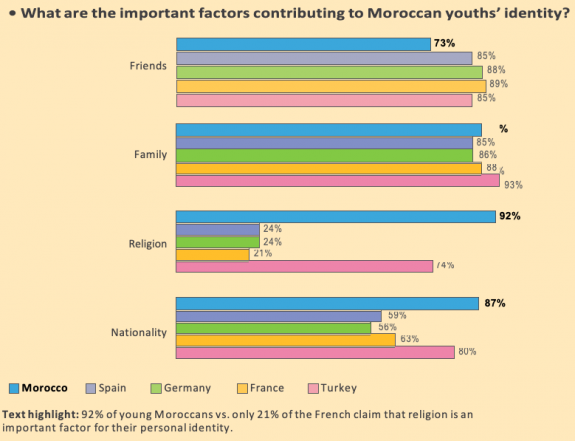
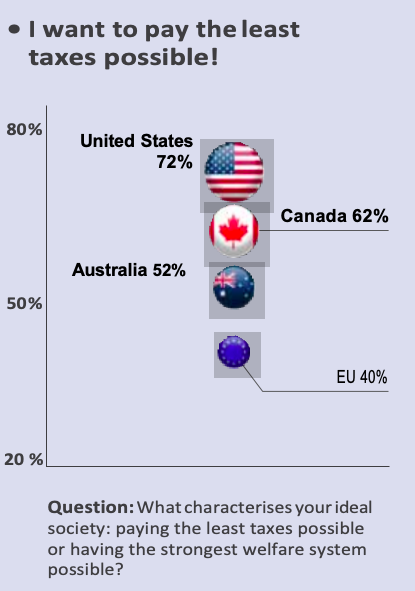
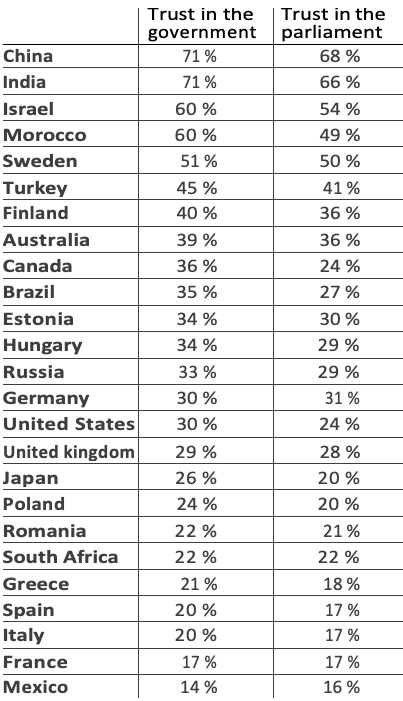
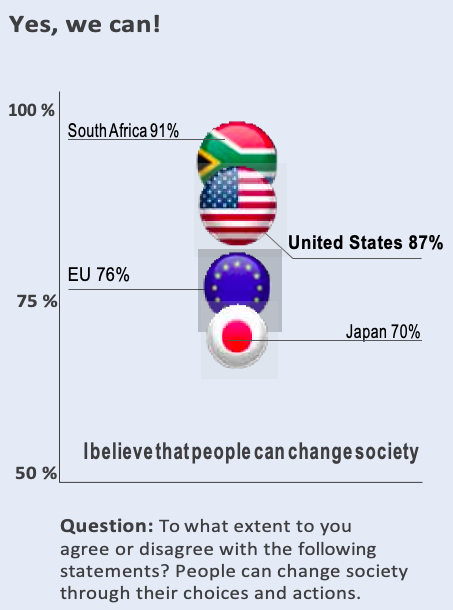
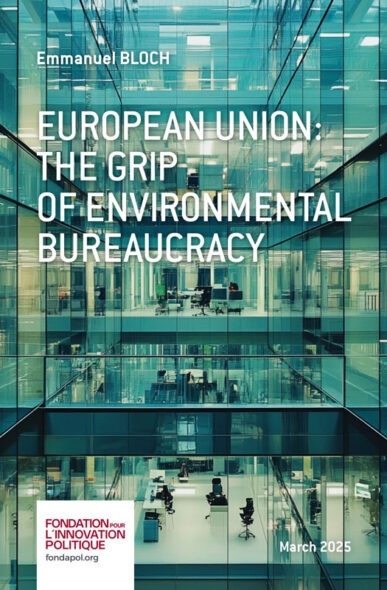
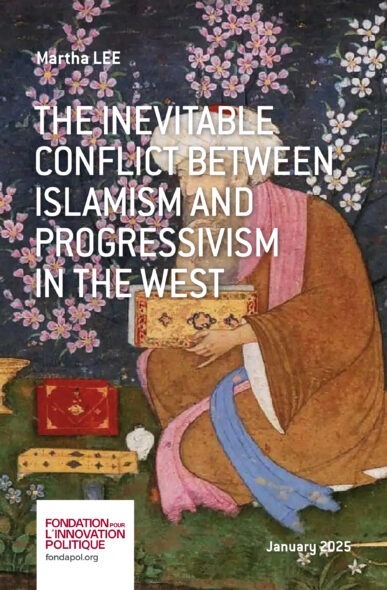

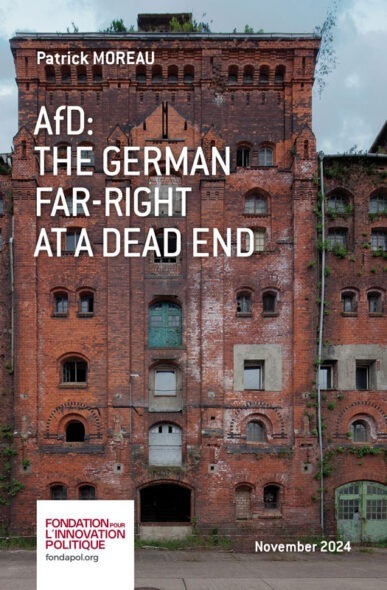
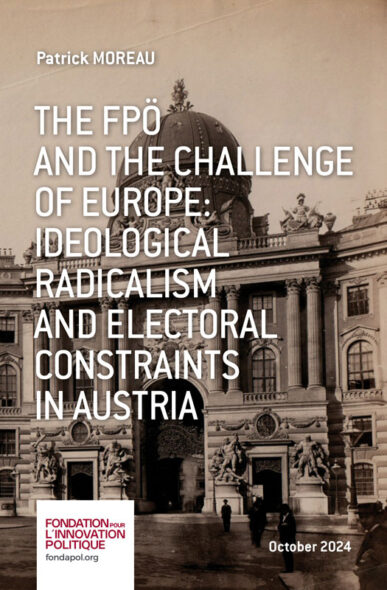

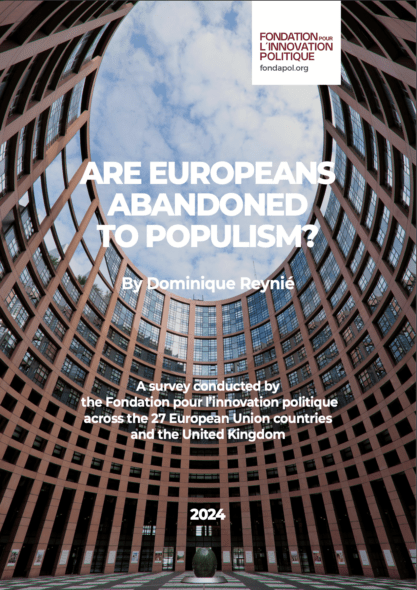
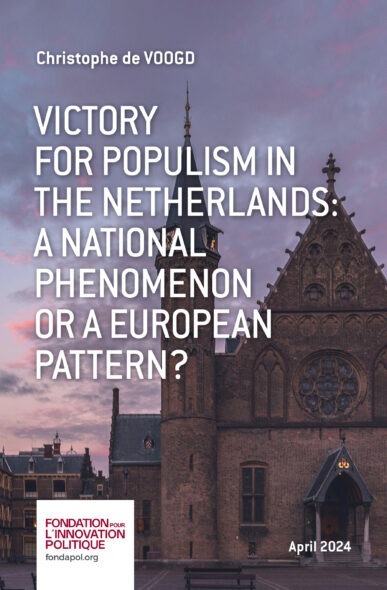

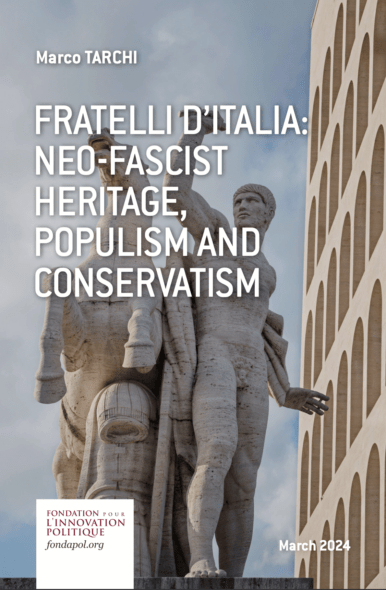
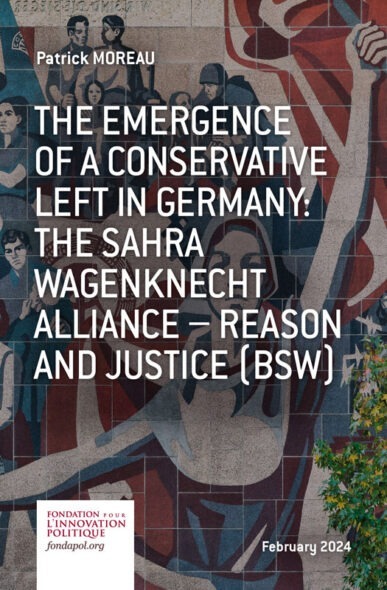
No comments.